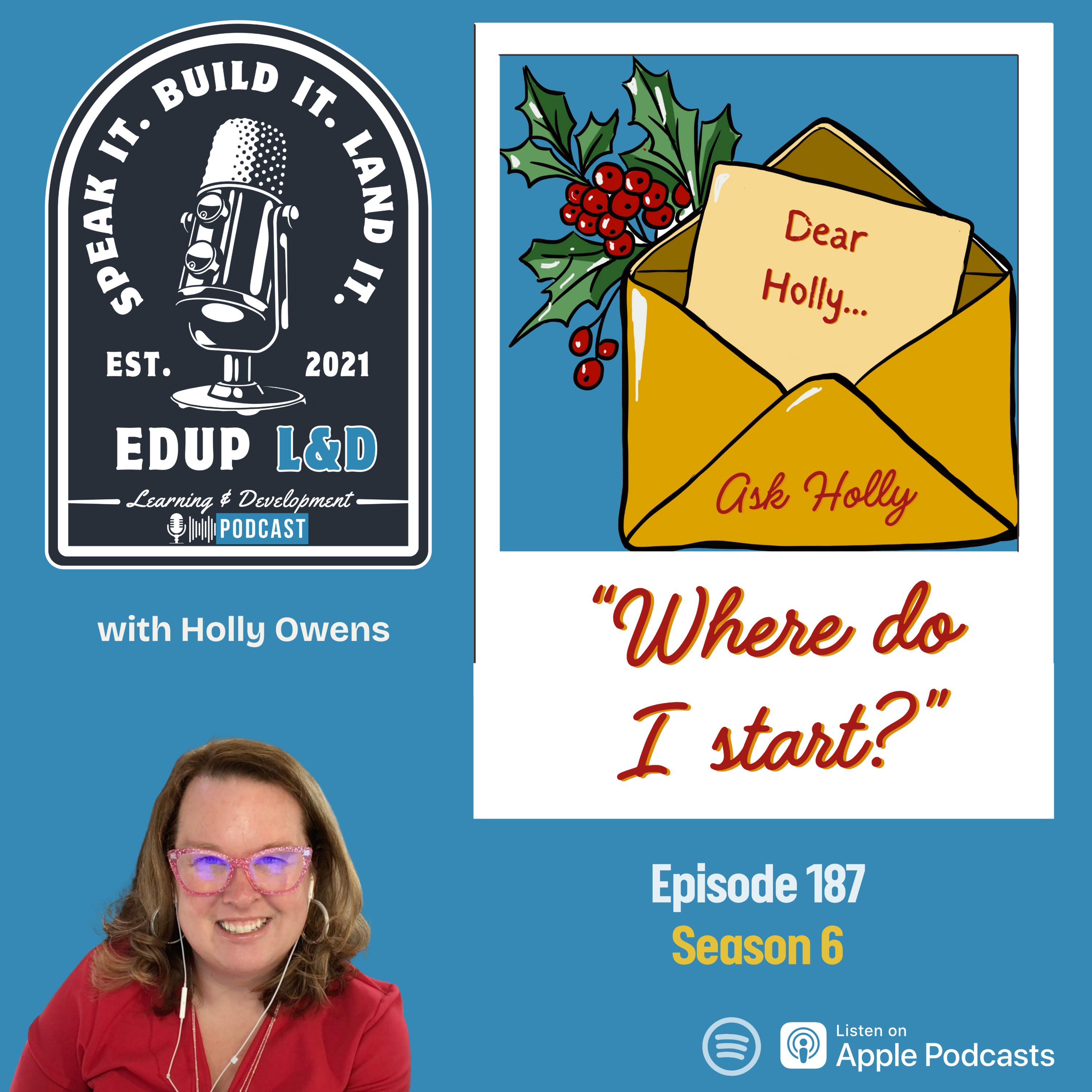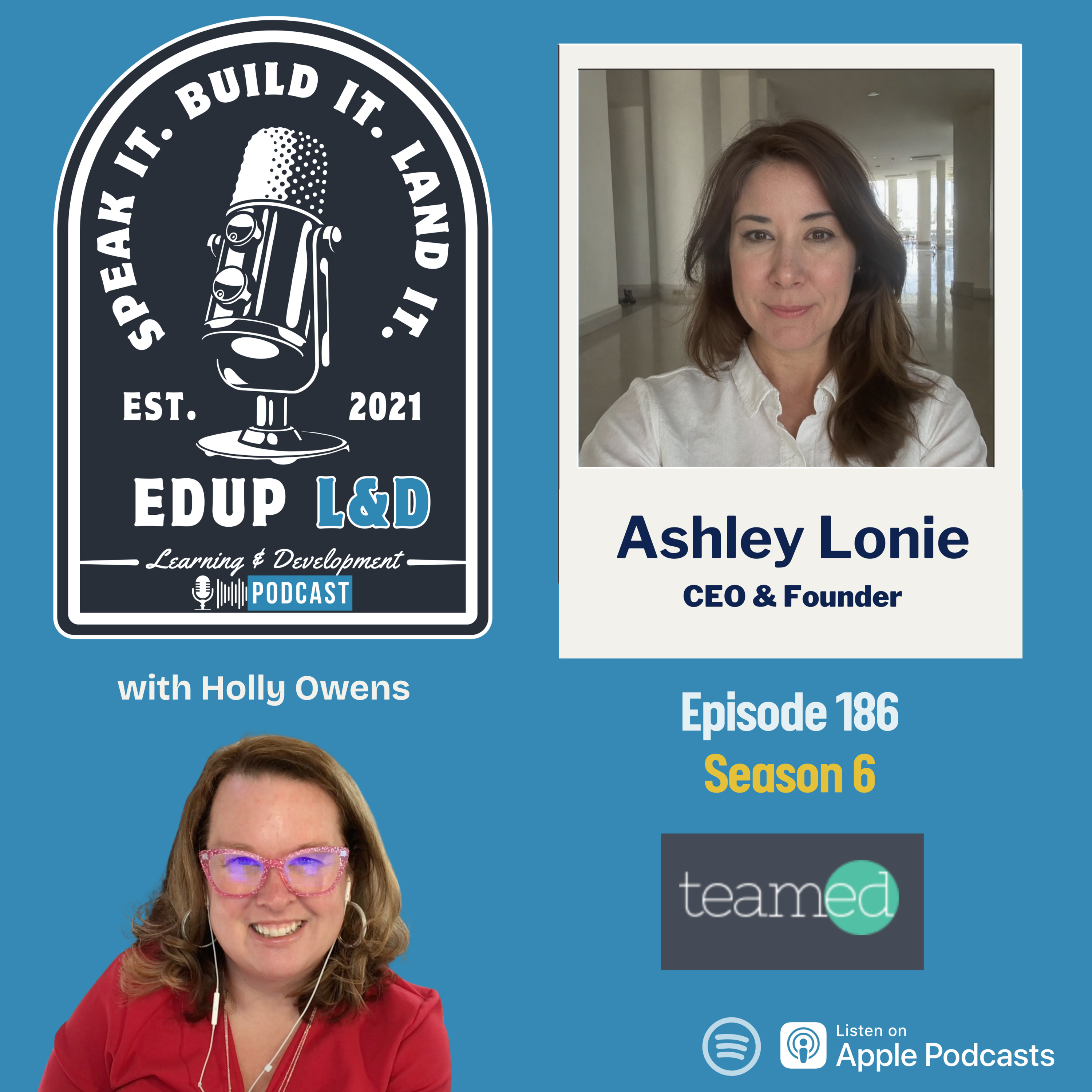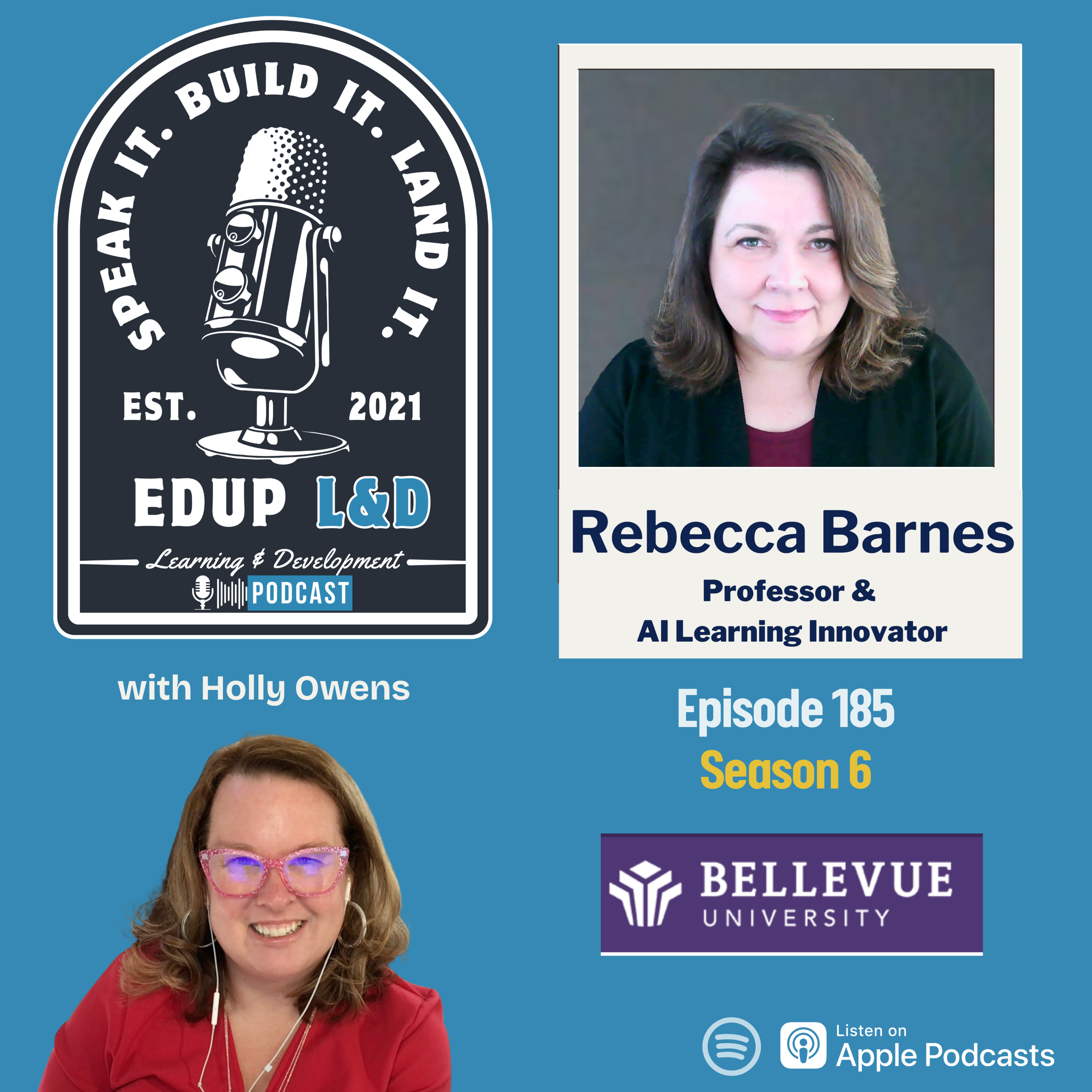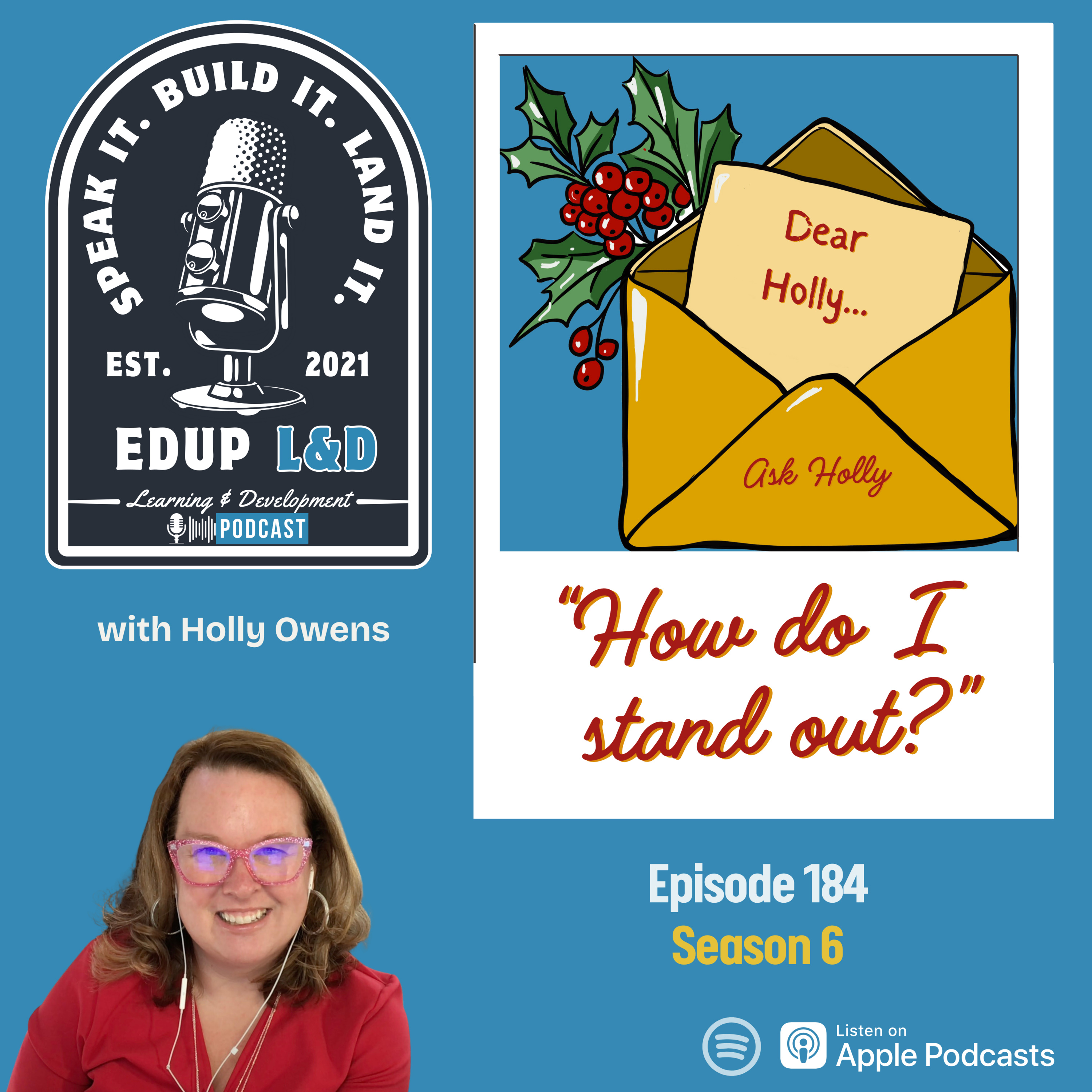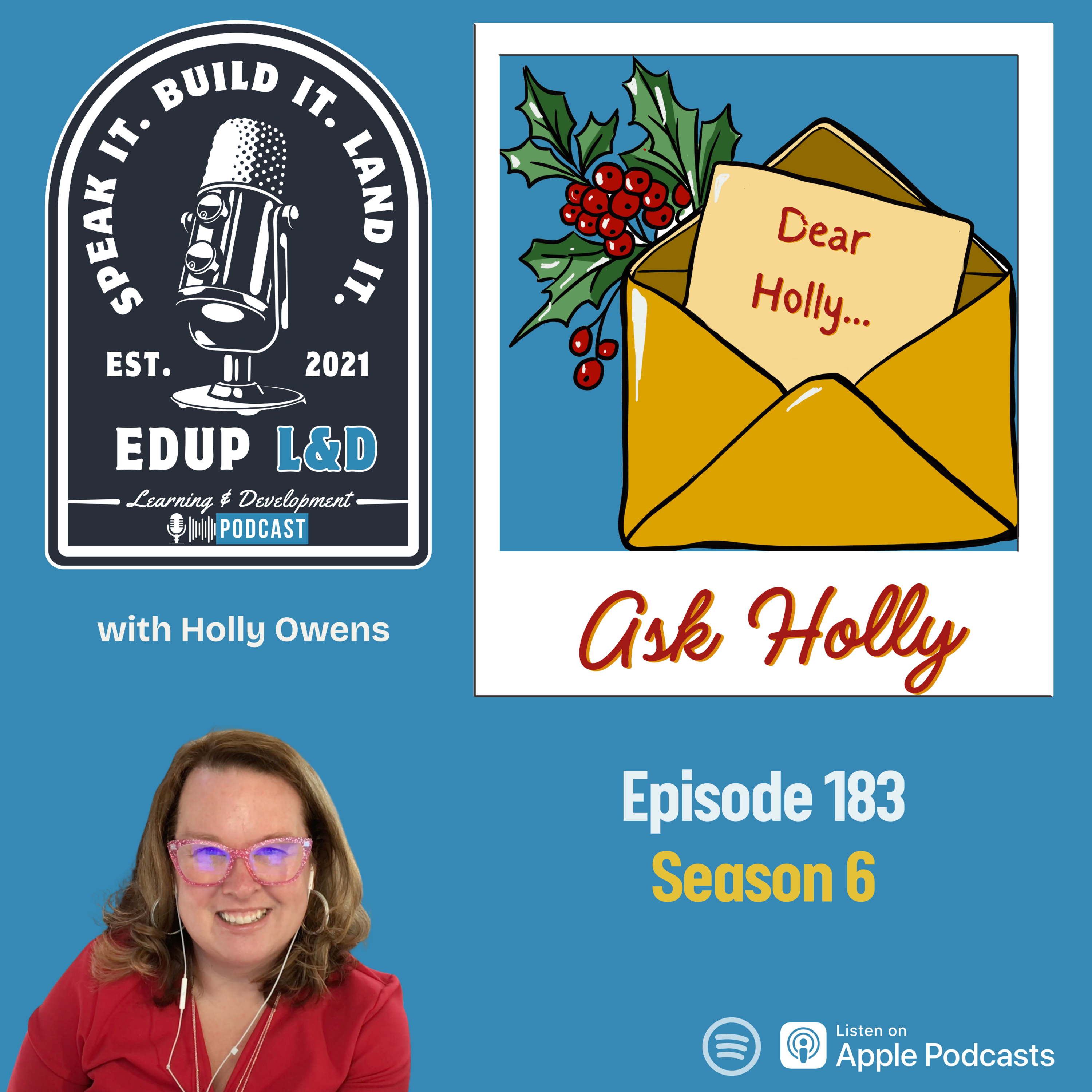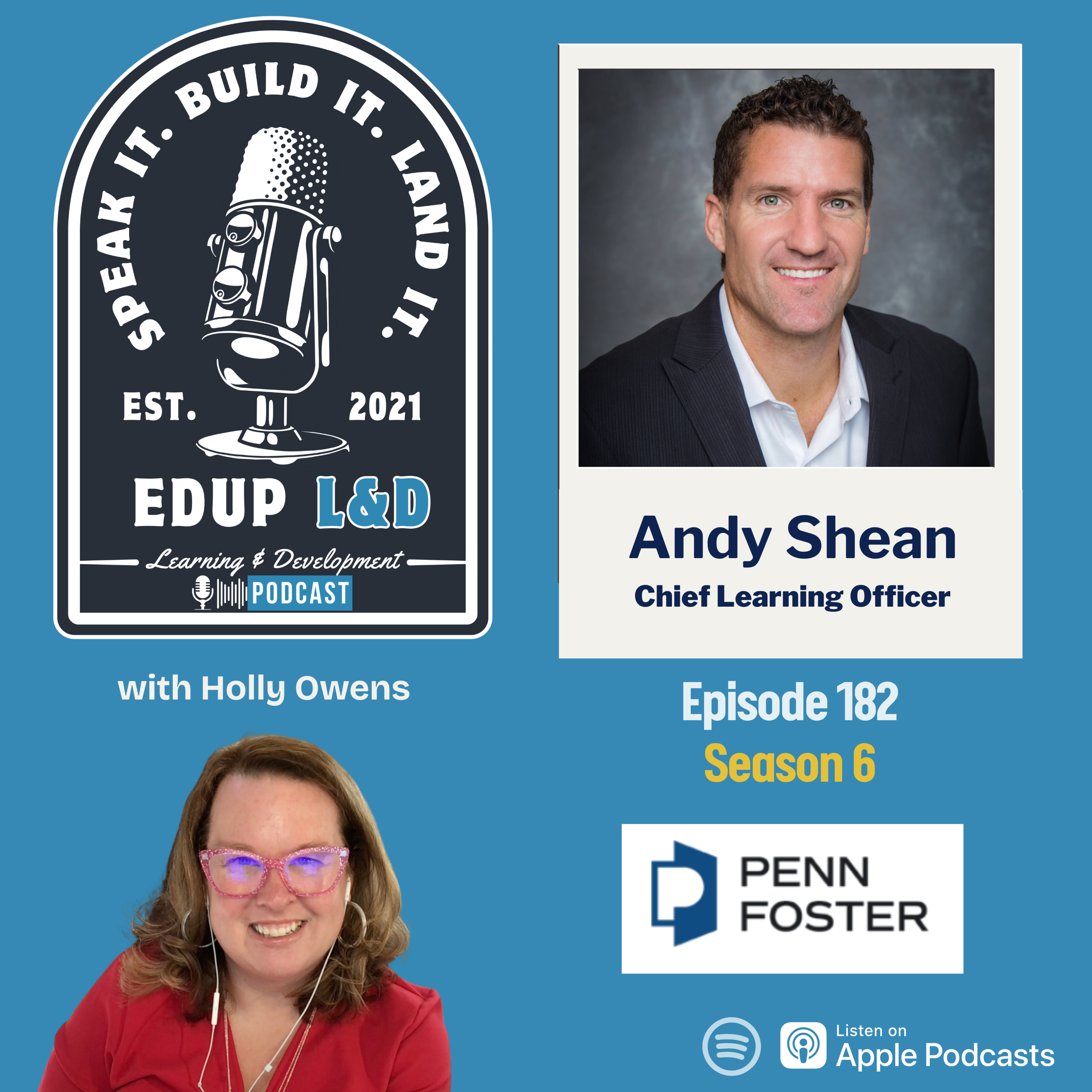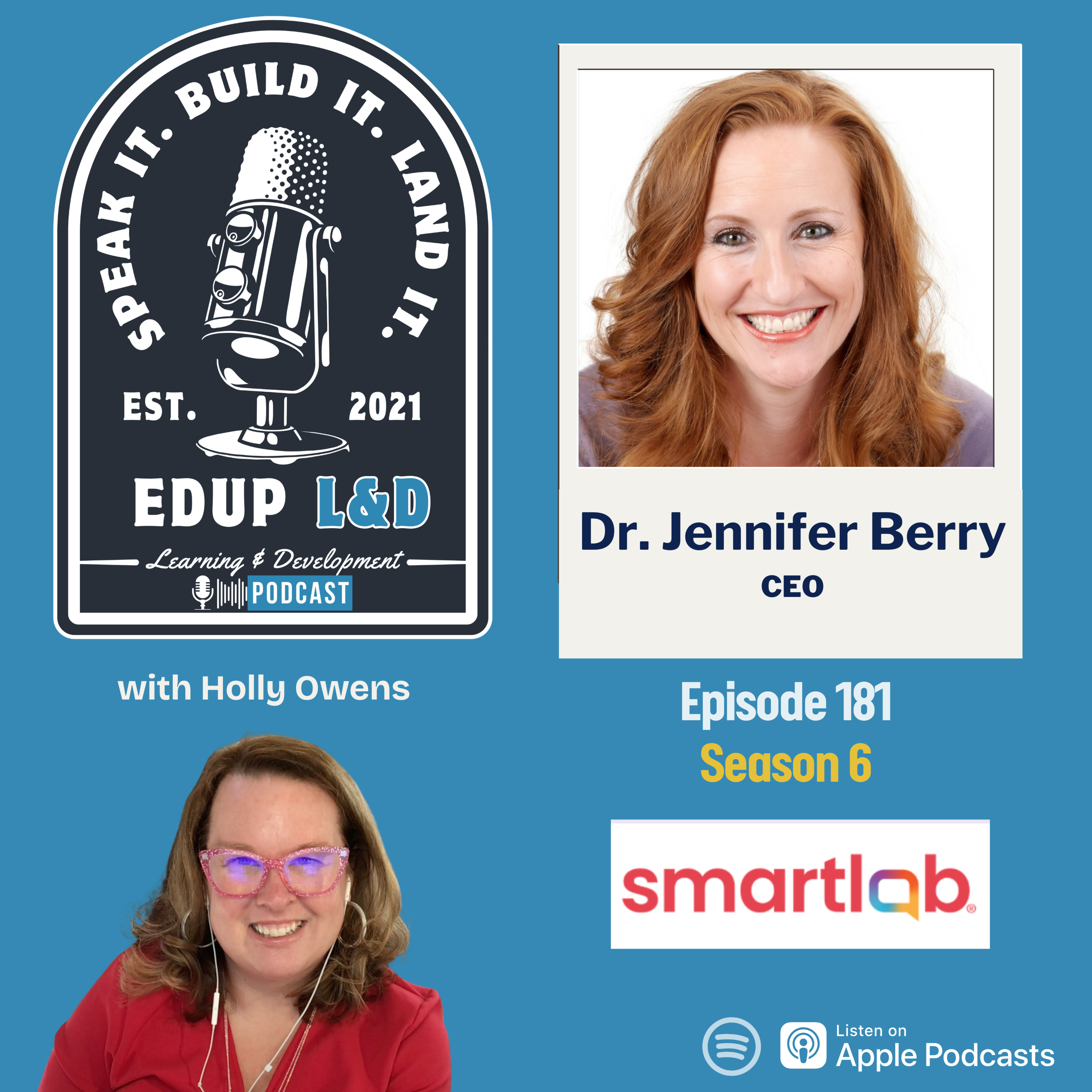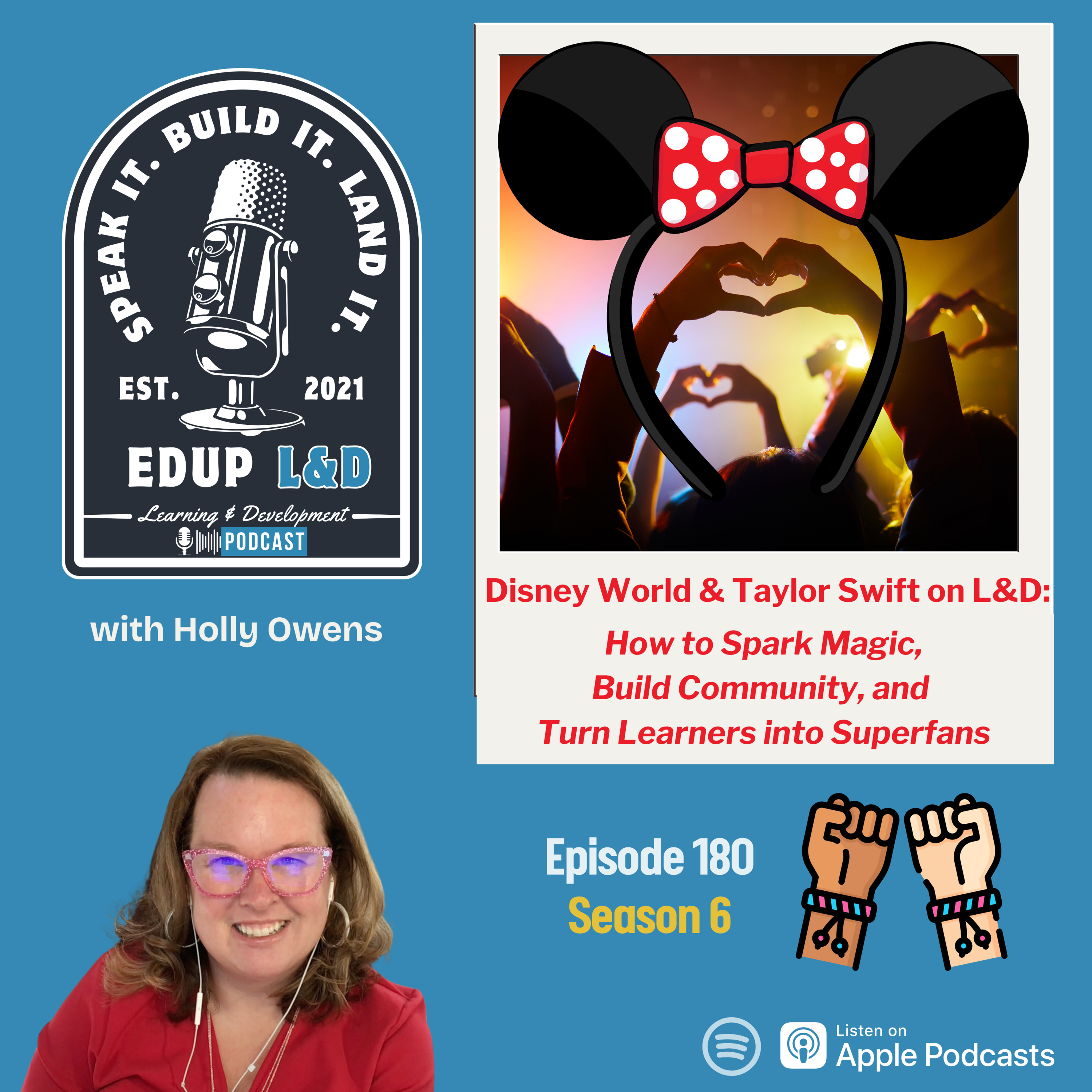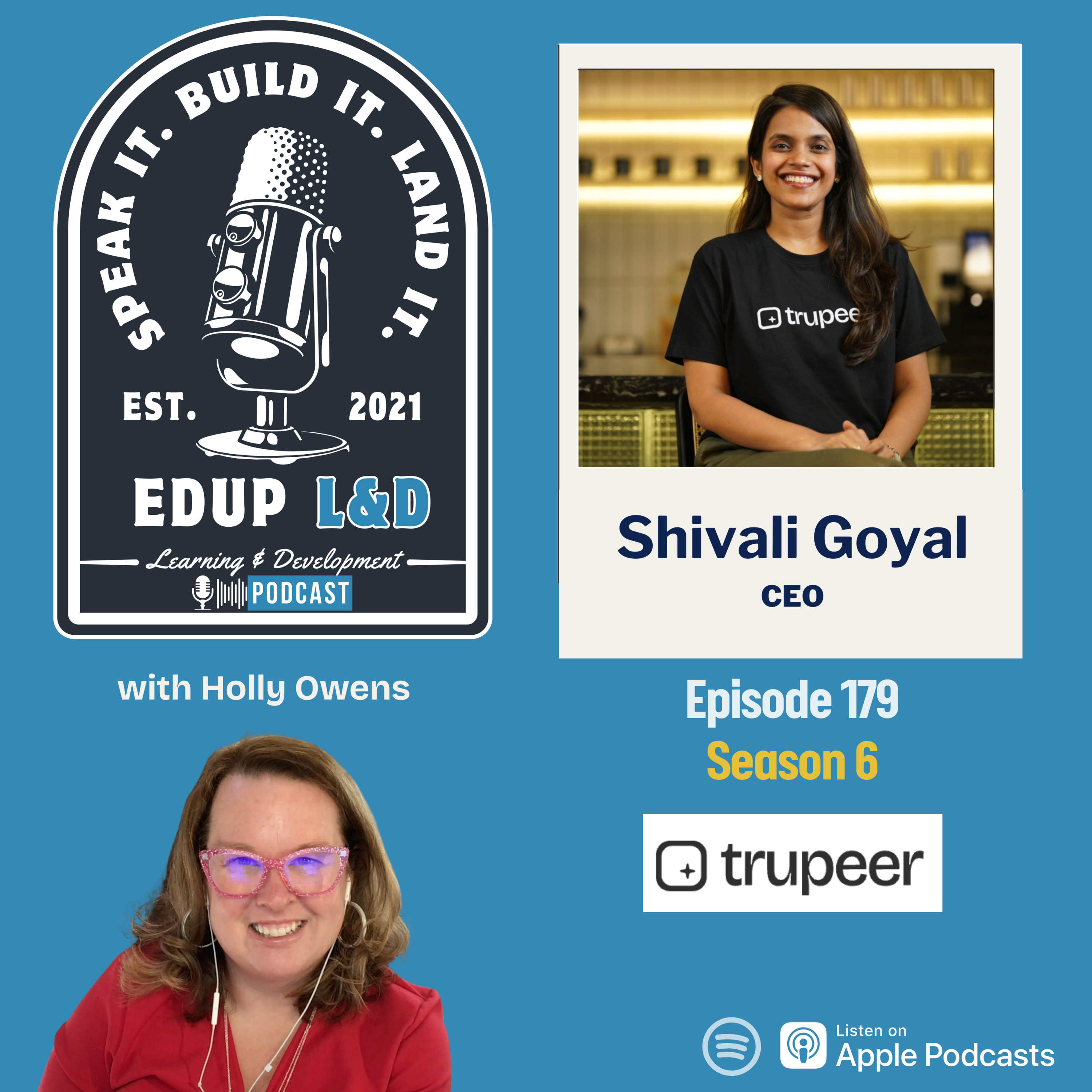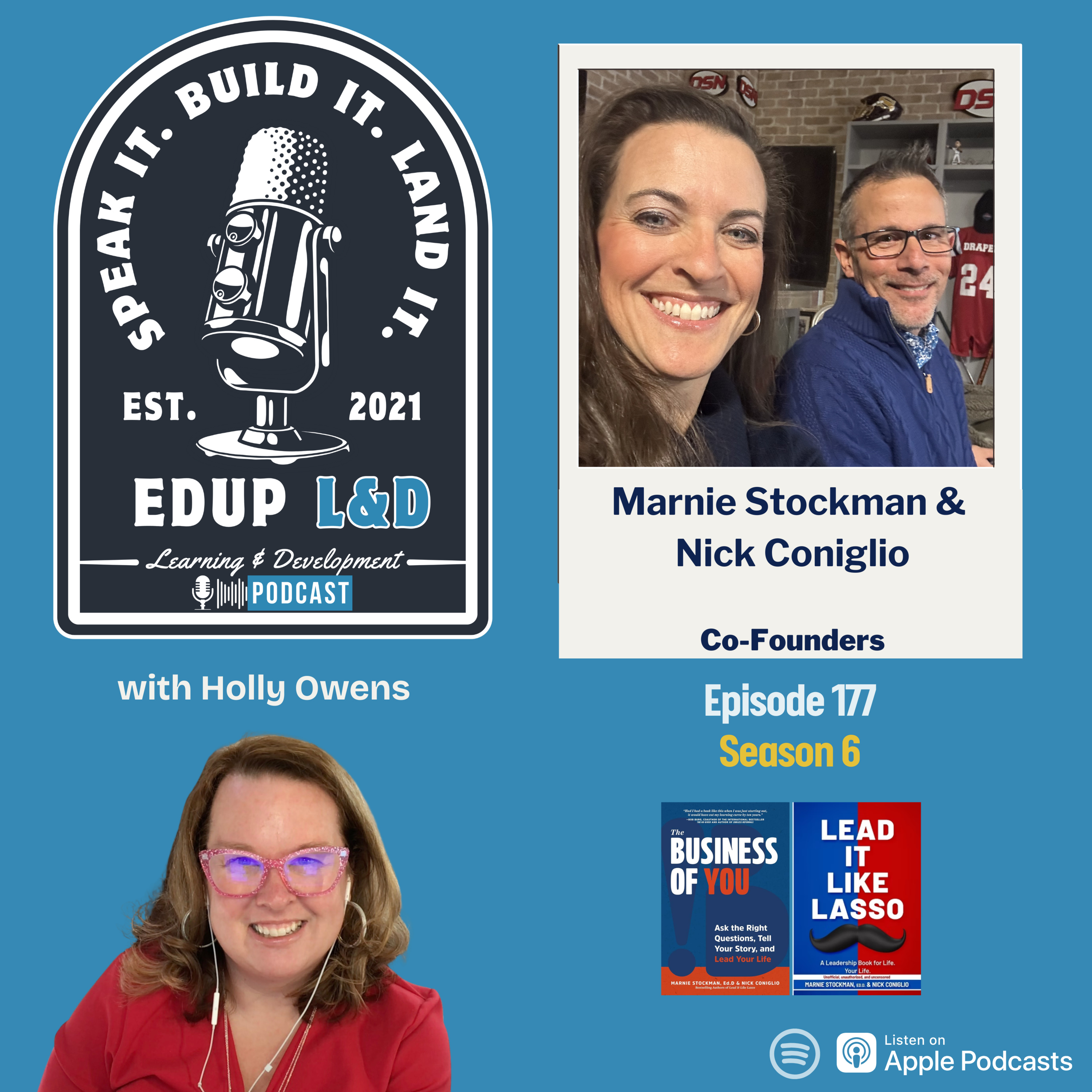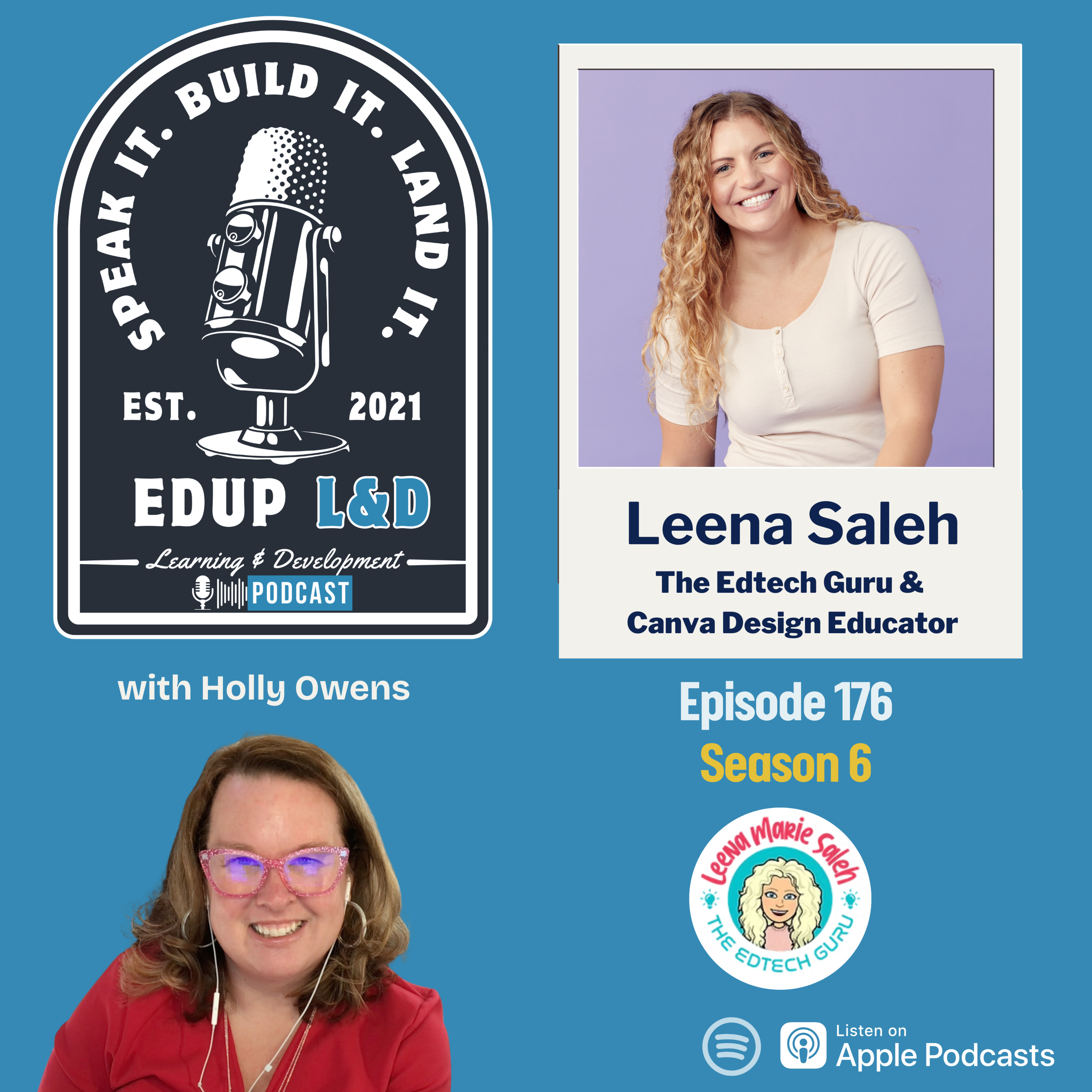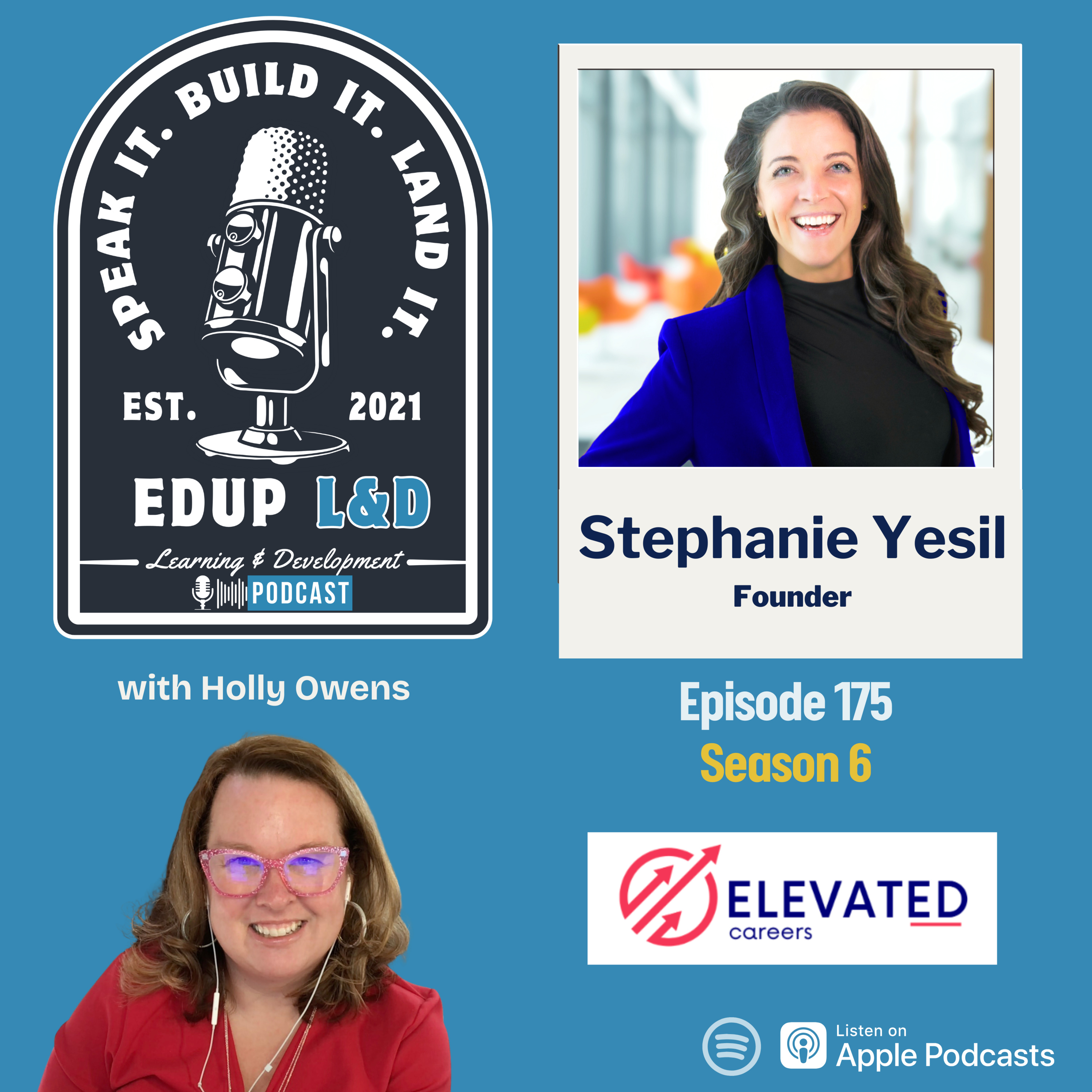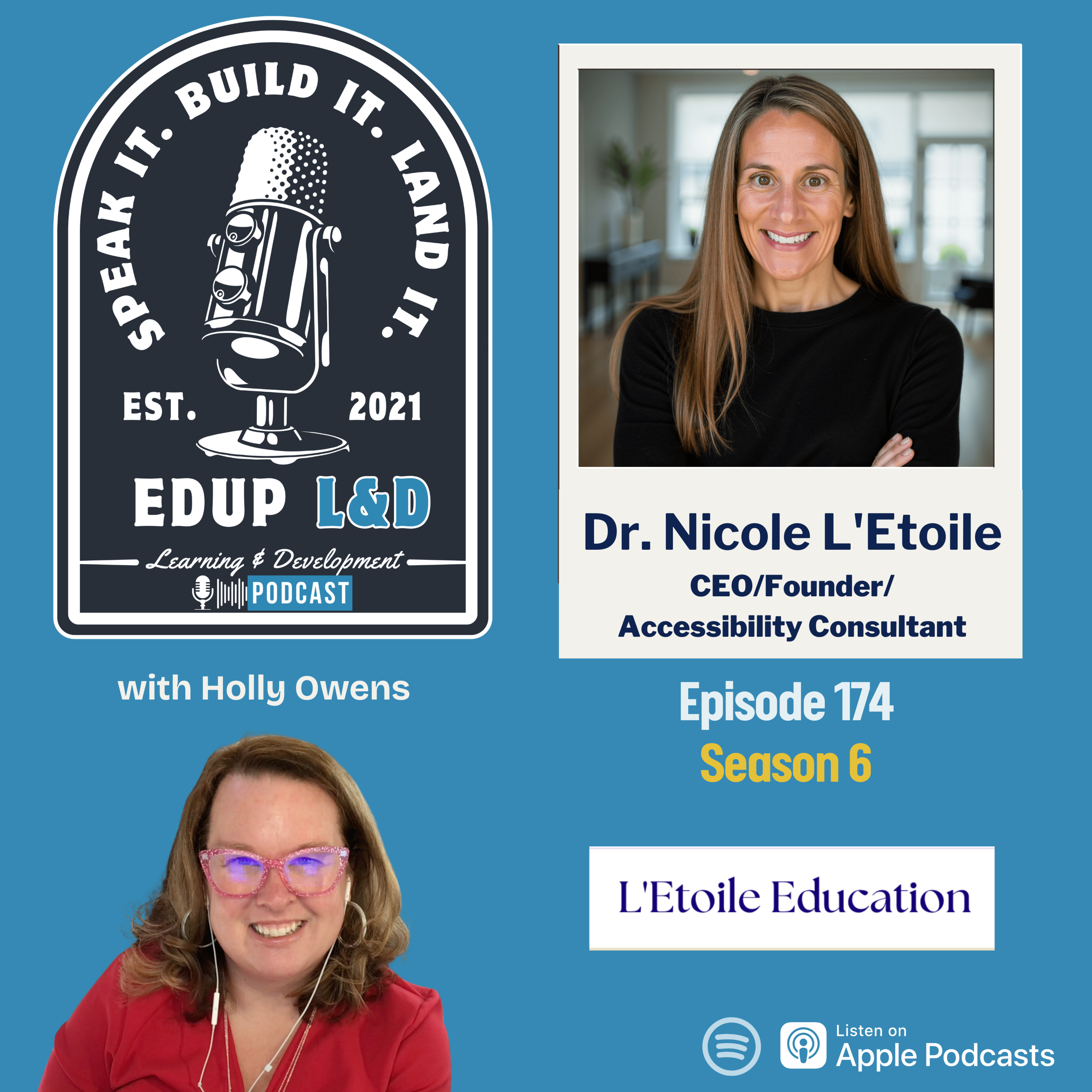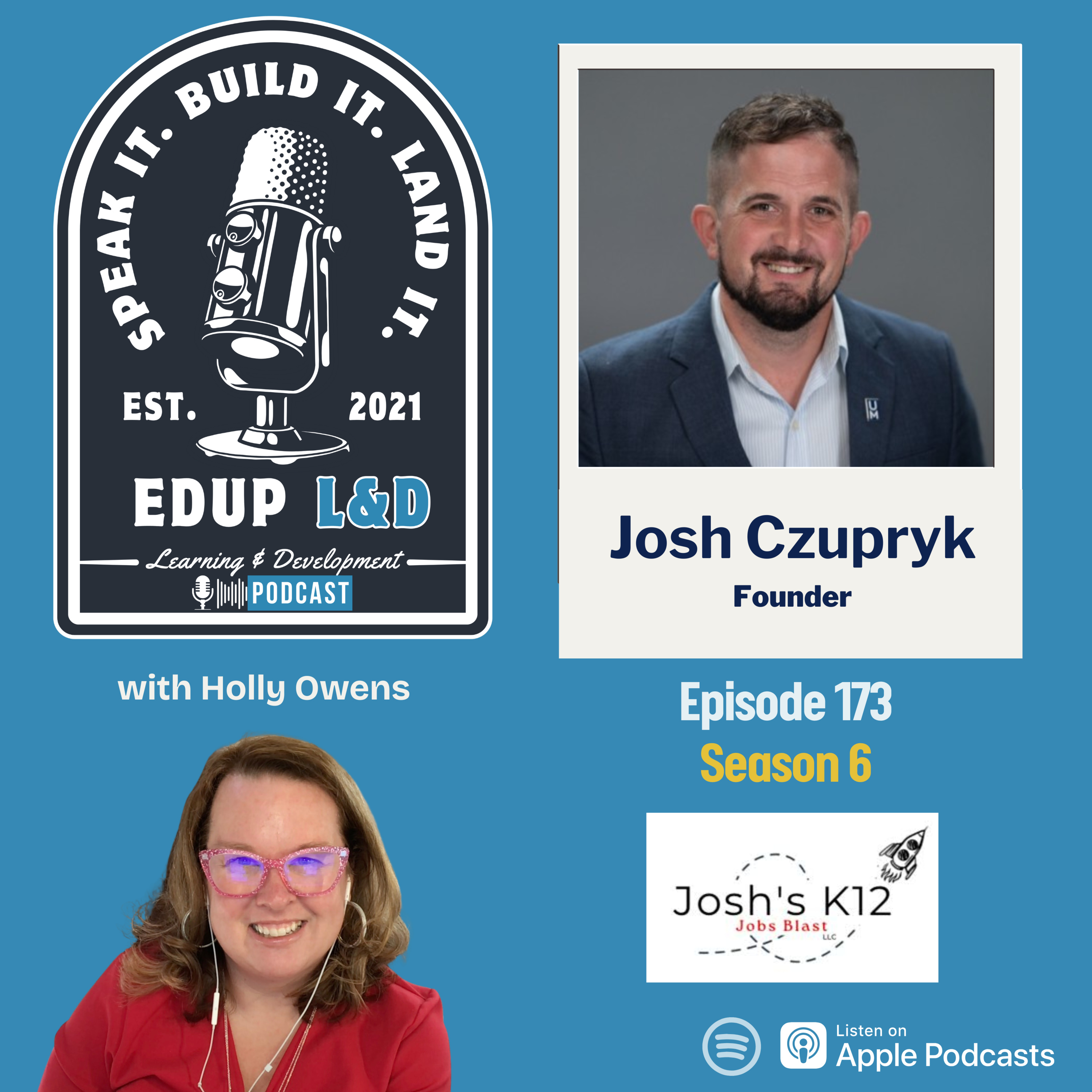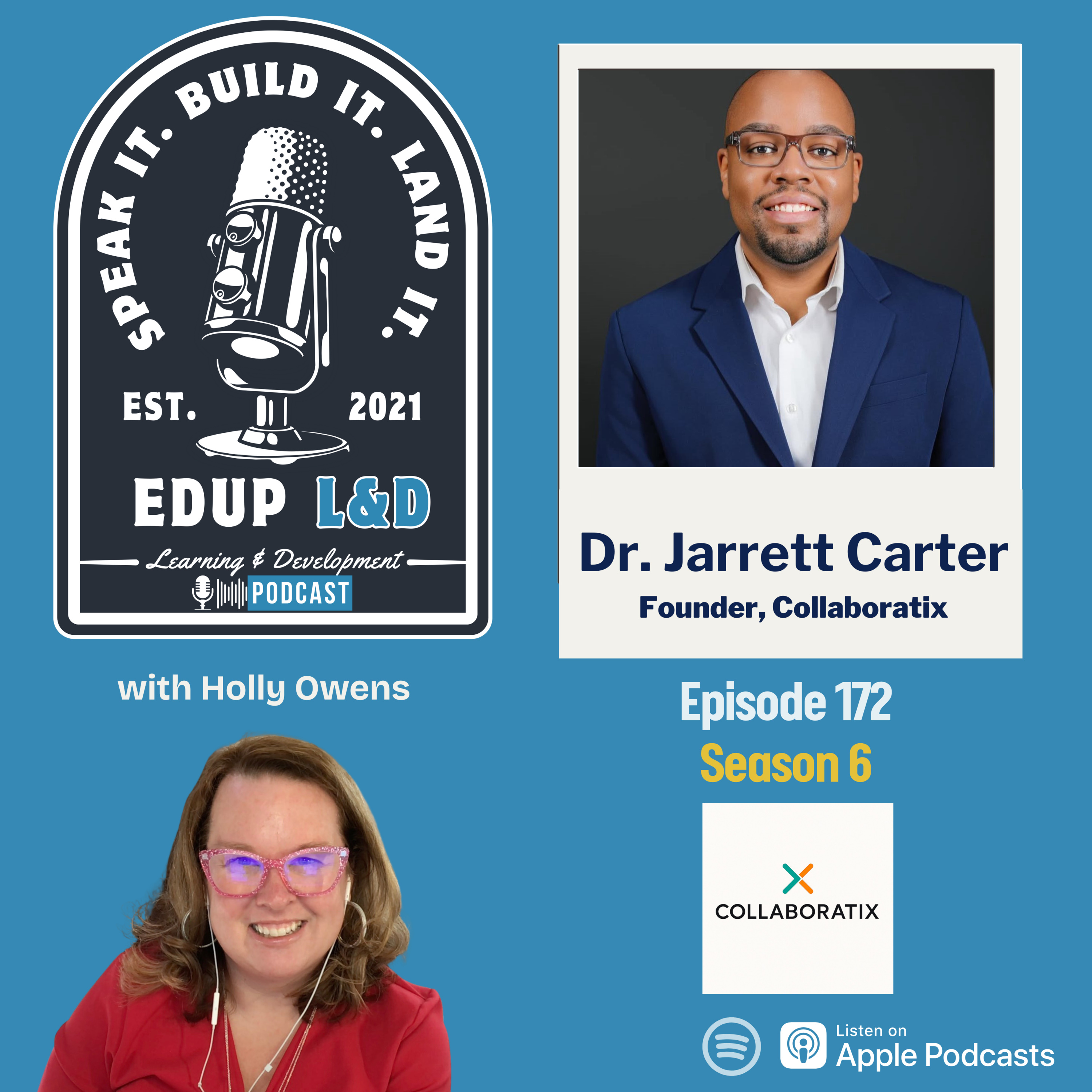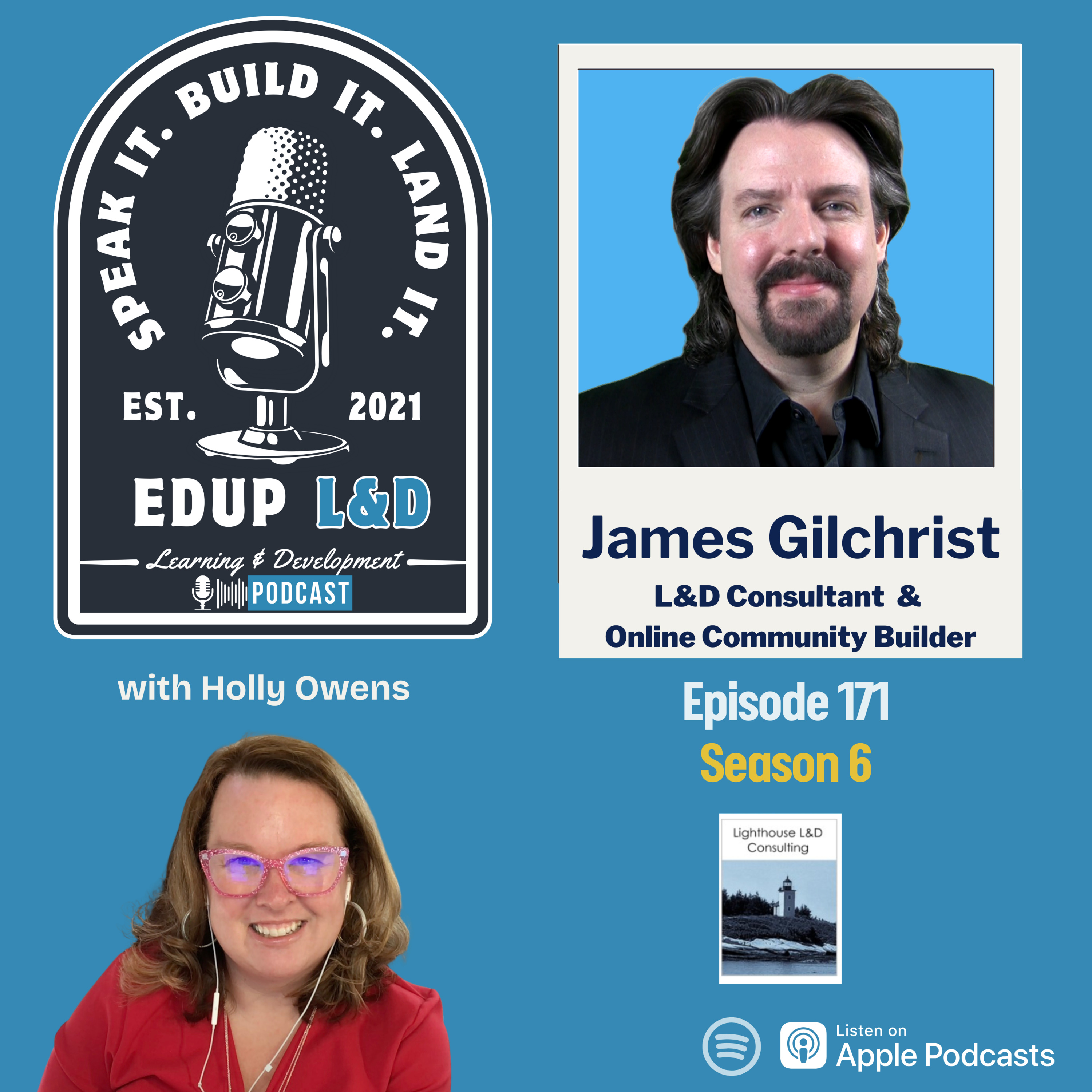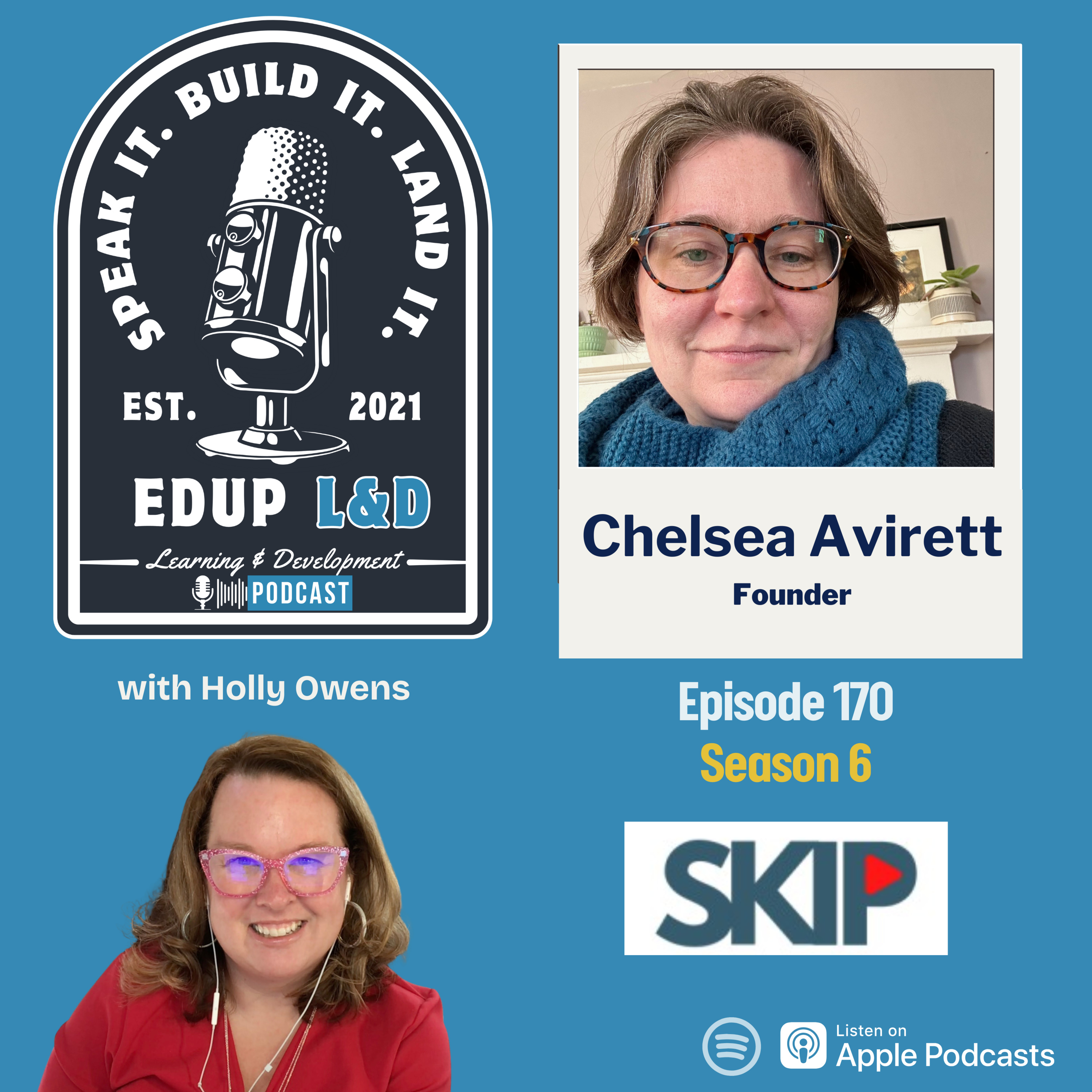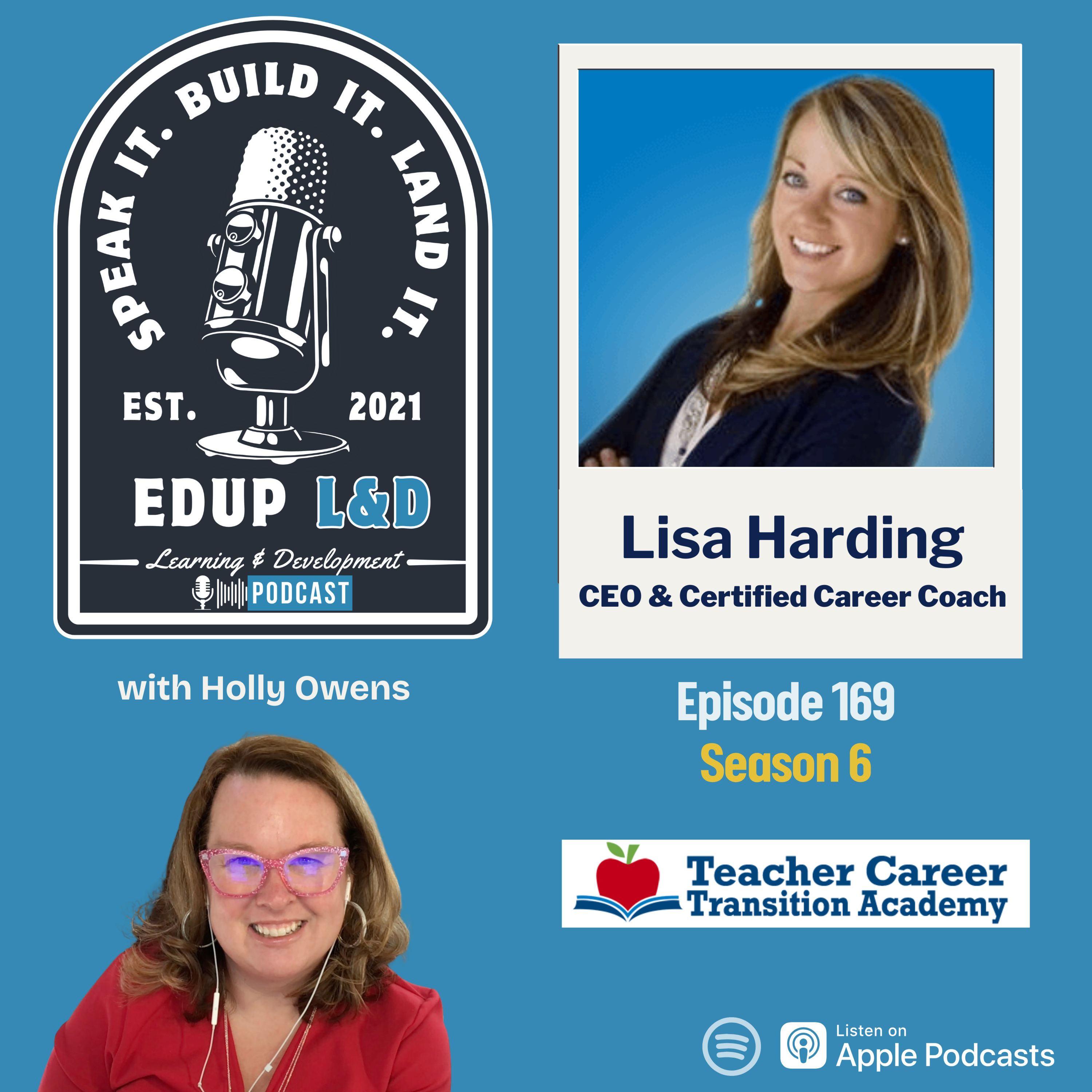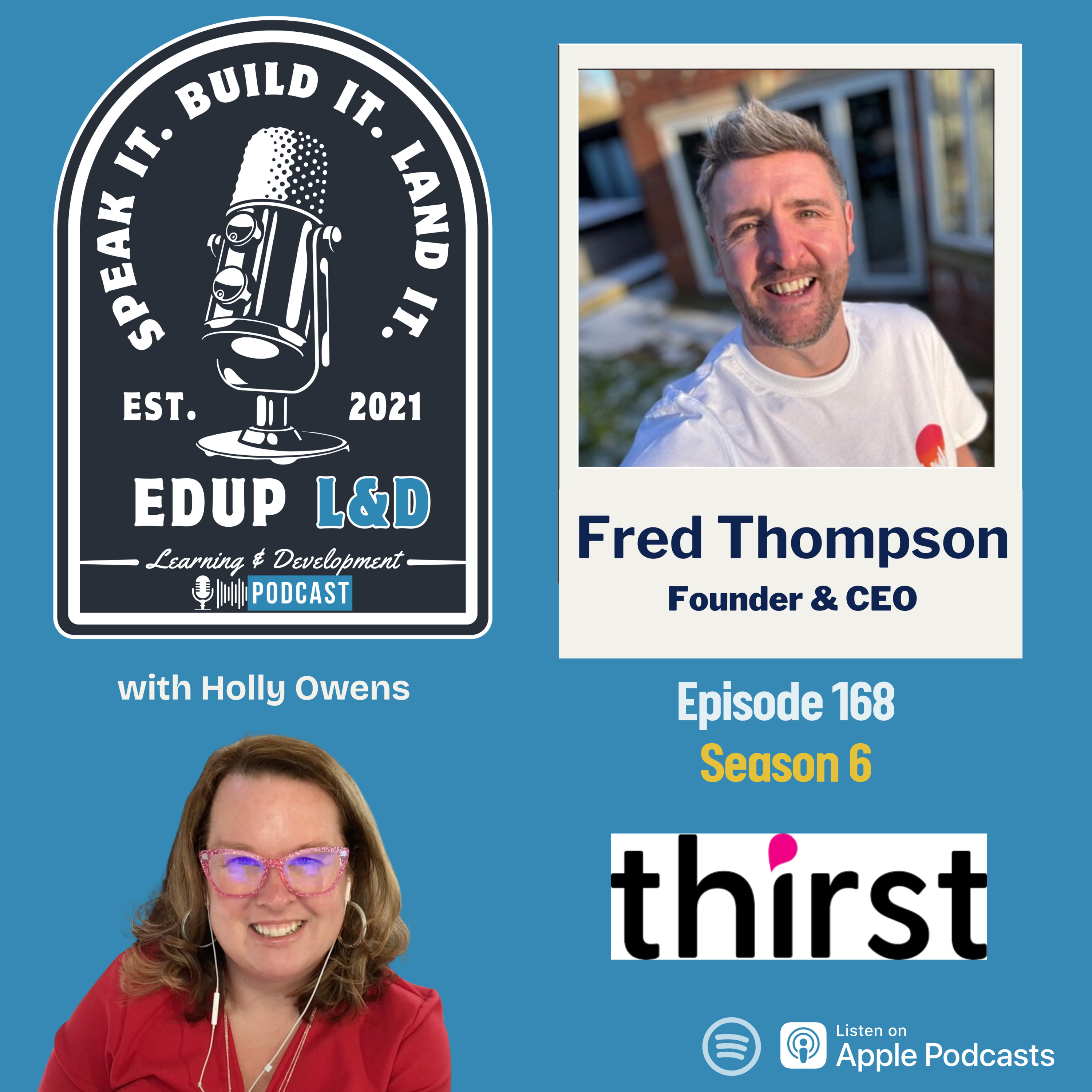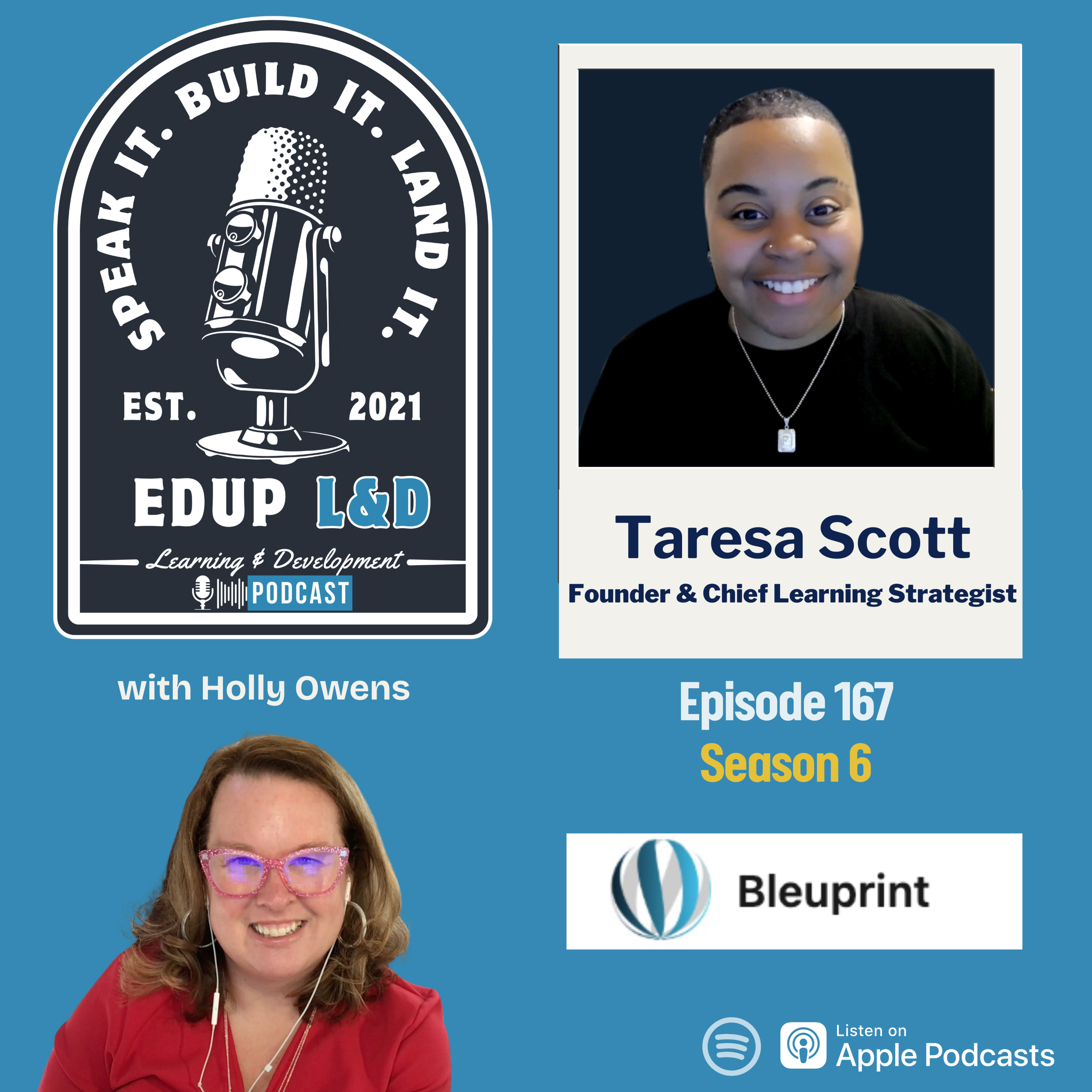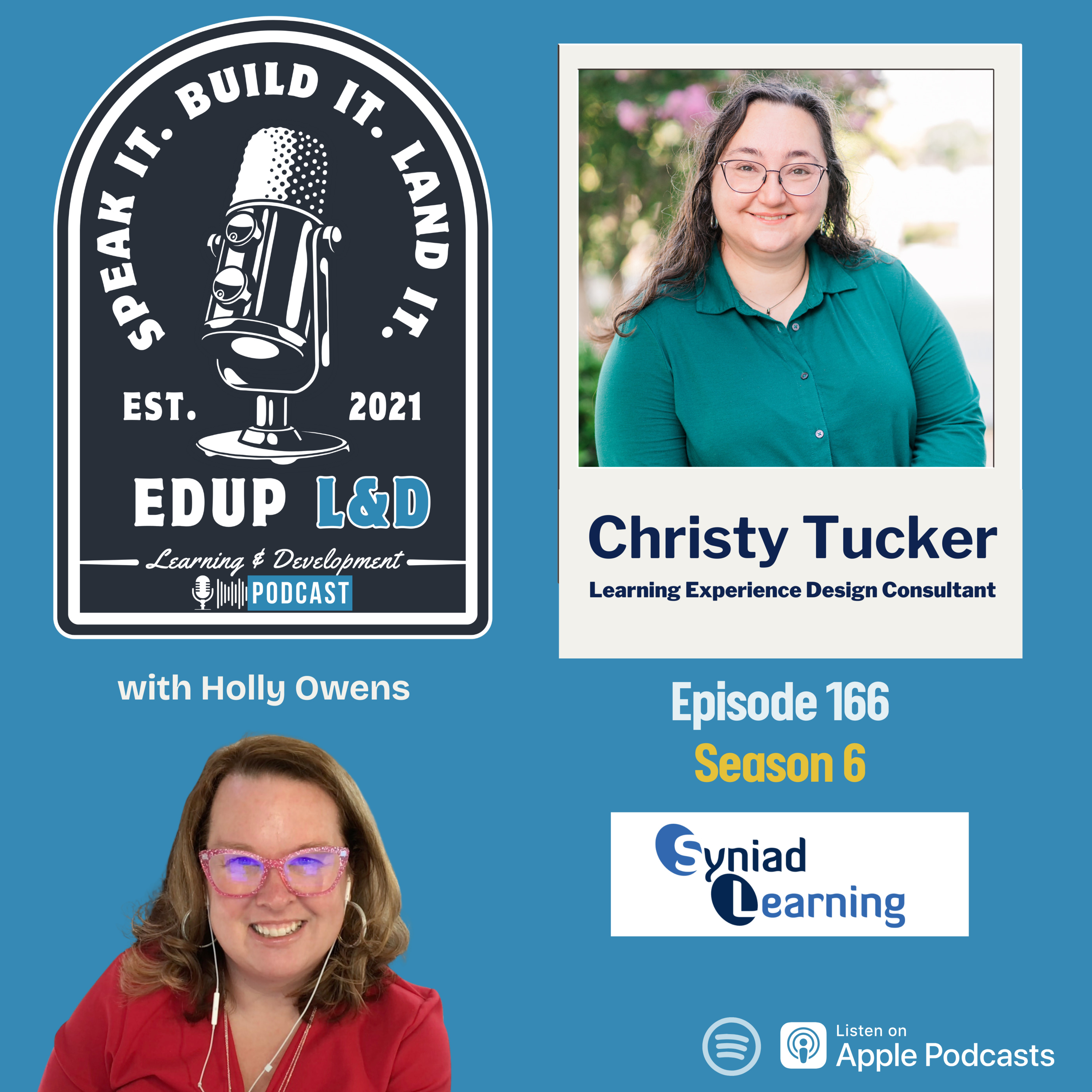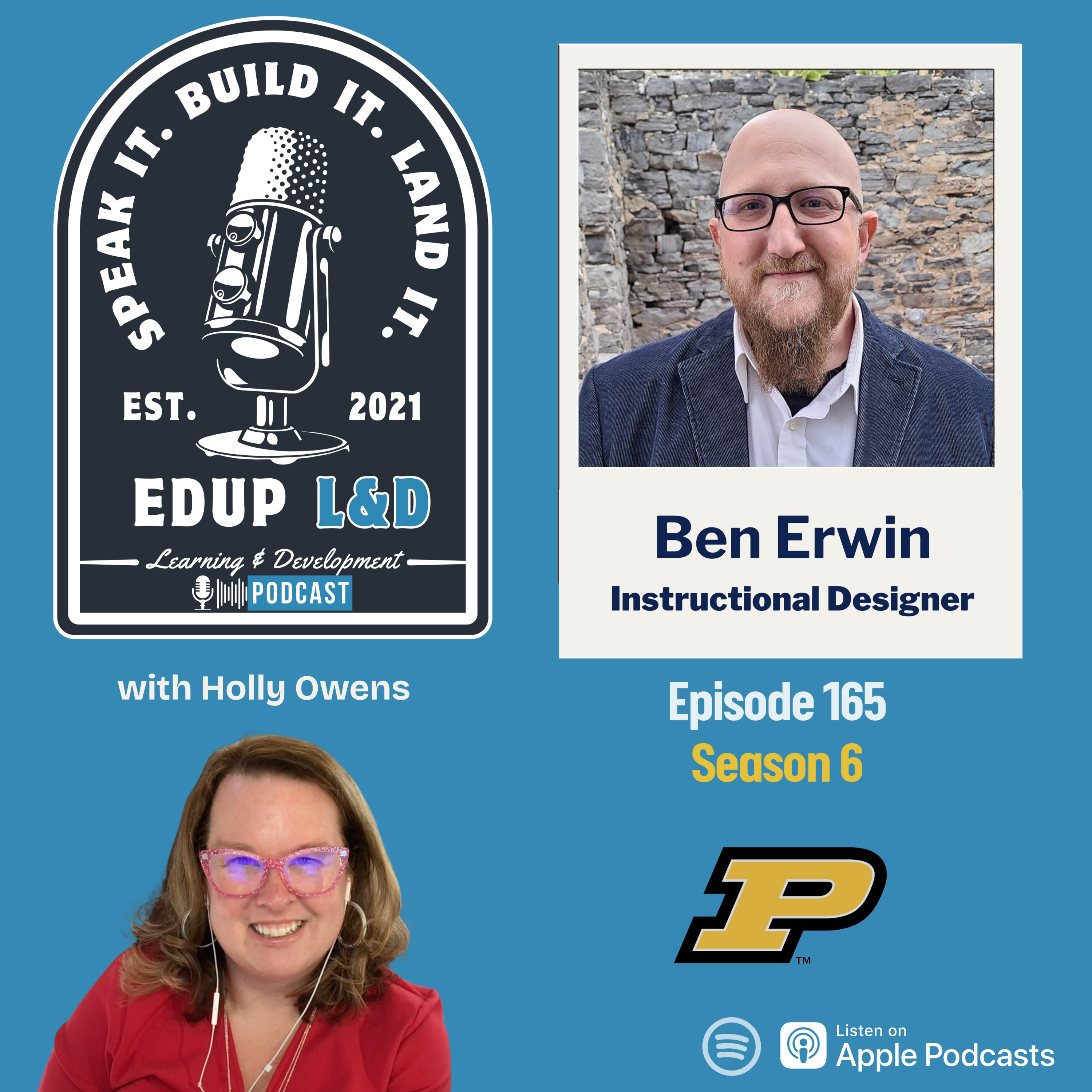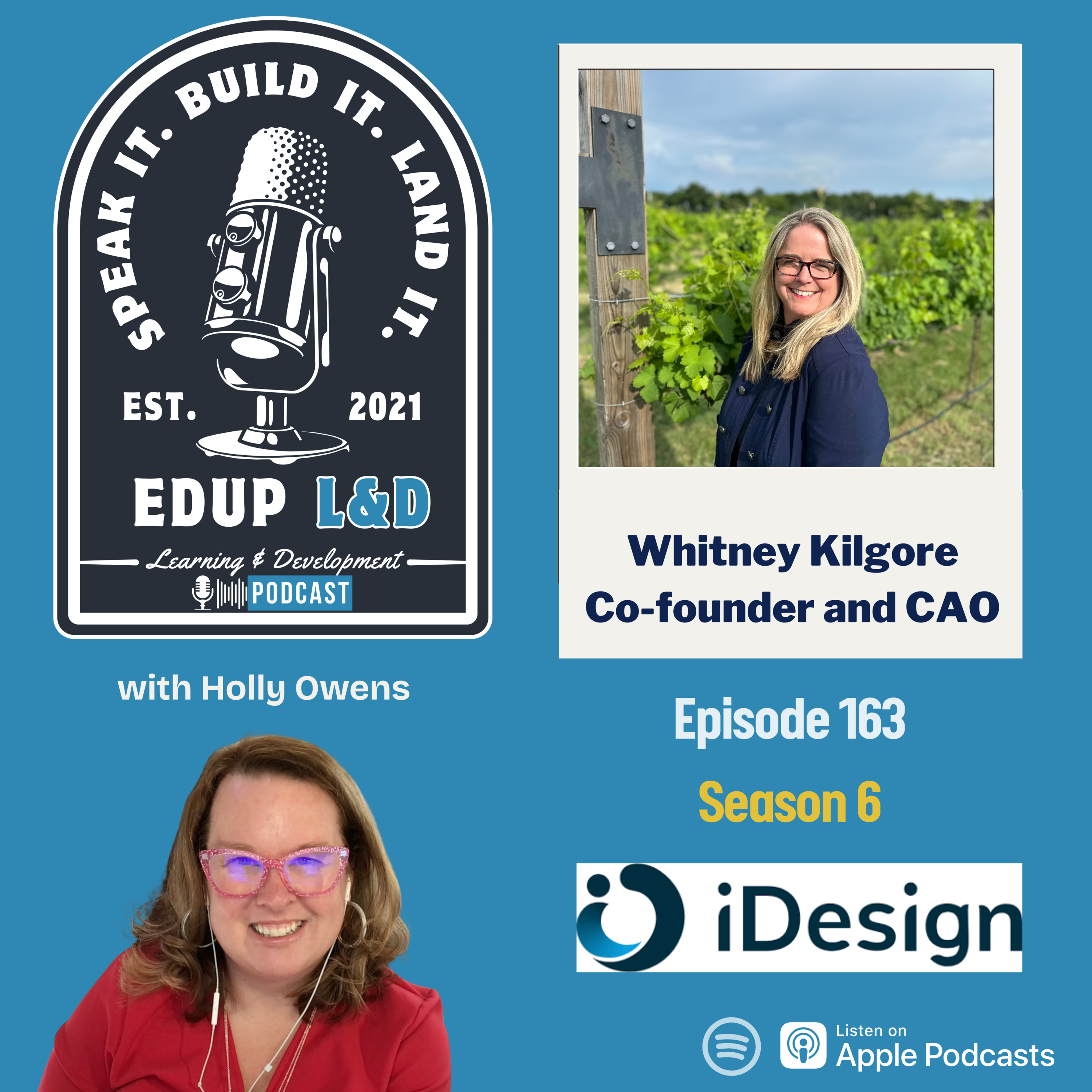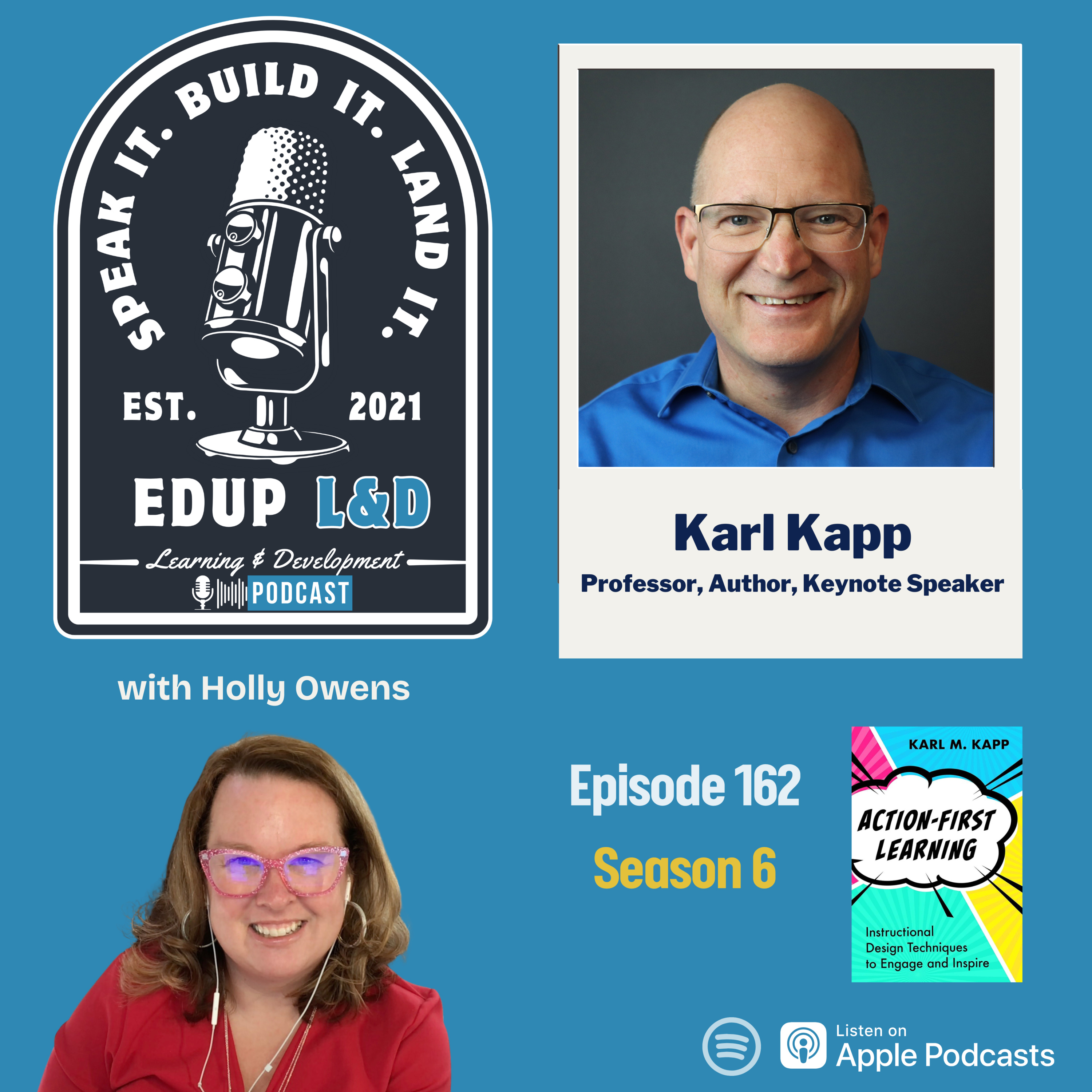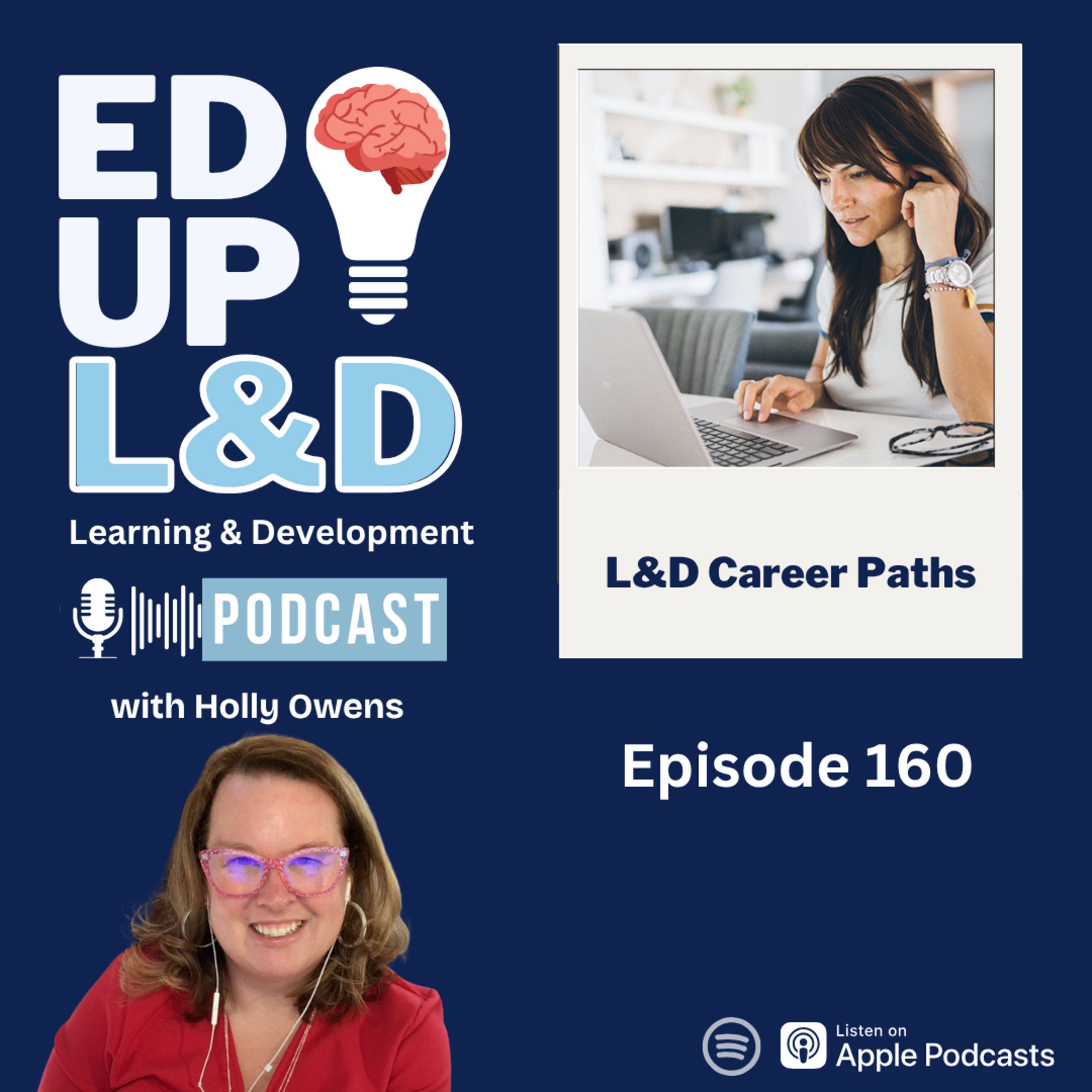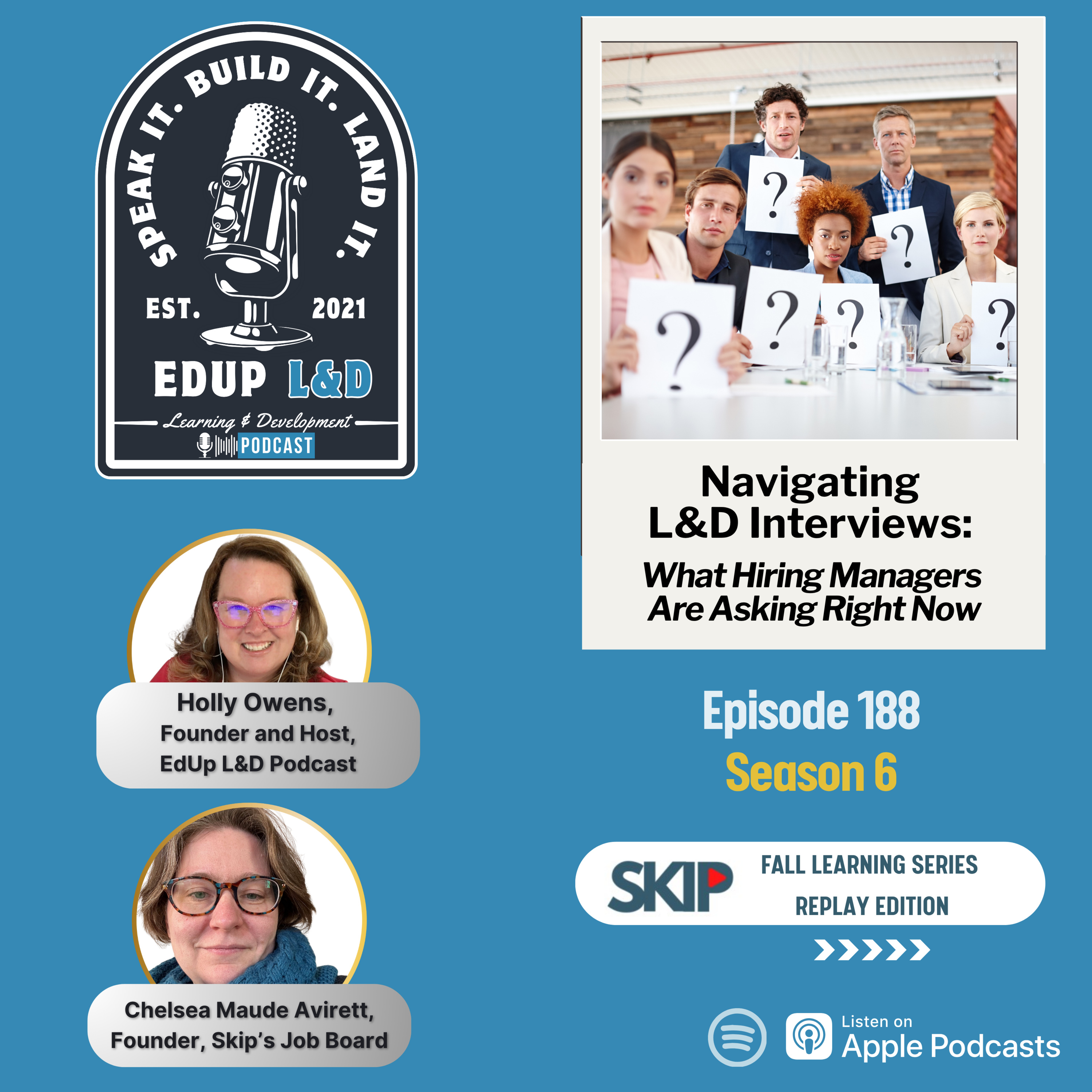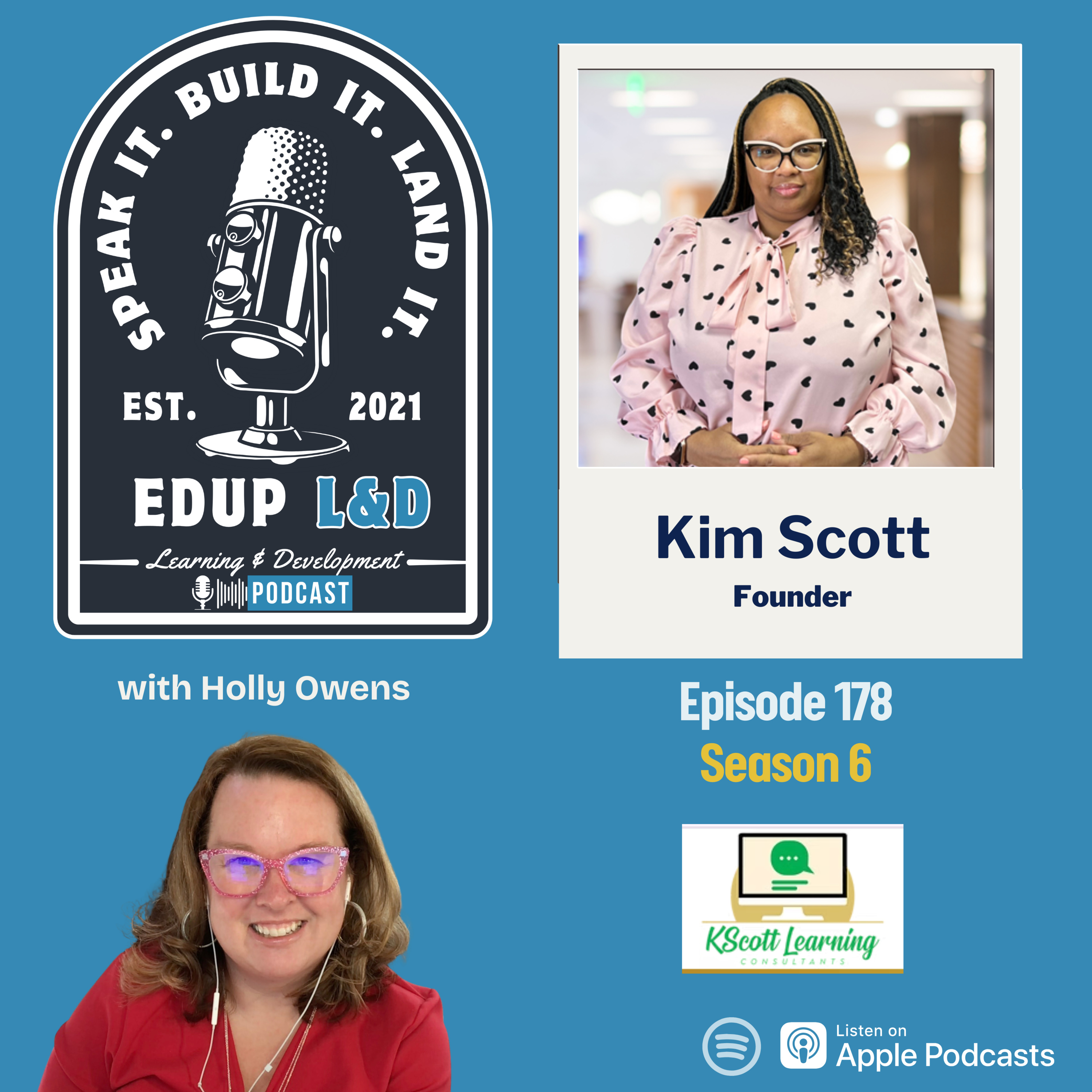
In this episode of EdUp L&D, host Holly Owens interviews Kim Scott, a former teacher who transitioned into the Learning and Development (L&D) field. Kim shares her inspiring journey from teaching to entrepreneurship, discussing the importance of identifying transferable skills, building a professional network, and documenting career achievements. She emphasizes the need for teachers to recognize their value and explore new career opportunities, especially in the evolving landscape of education and technology.
Resources mentioned in this episode:
Guest Contact Information:
___________________________________
Episode Sponsor: iSpring Solutions
🎙️ Huge thanks to our friends at iSpring Solutions for sponsoring this episode of the EdUp L&D podcast! 🙌
If you haven’t already, be sure to check out the iSpring Learning Exchange Community — a vibrant space for creators, educators, and L&D pros to connect and grow.
Grateful for the support and excited to see what our community creates 💡
Thanks for tuning in! 🎧
Holly Owens (00:01.378)
Hello everyone and welcome to another fantastic episode of EdUp L &D. My name is Holly Owens and I'm your host. And I'm really excited because Kim Scott is here today and we've talked via LinkedIn quite a bit. Never face to face, synchronously, in real life, whatever you call it. So Kim, I'm so glad you finally got and came on the show. Welcome in.
Kim Scott (00:25.681)
Thank you for having me. Thank you for having me. Yes, it's always great when you make these like, I call them internet friends, and then you get to meet them actually on a session. like, I can talk to you. It's real.
Holly Owens (00:38.478)
It's real, you're a real person, you're a real human. Well, Kim, I know some about you from stalking your LinkedIn profile and the different things that you've been doing over the years. So why don't you tell us a little bit about you, what you've done in the past, what you're currently doing, how are things in the L &D space going for you?
Kim Scott (00:42.161)
are you doing?
Kim Scott (01:02.737)
actually started in teaching and I moved into L &D like a lot of people. What's different about me is I did it before the movement. So I called the movement about 2020 during the pandemic, everybody went home and then there was this big teacher transition and people were like, I wanna do remote work. So there was this big transition of movement because people had already been transitioning as we see, I have.
Holly Owens (01:10.519)
Yeah, me too.
Kim Scott (01:31.845)
But there was this big movement. So I moved almost 10 years, not quite 10 years before that movement. And before there were academies and all that sort of thing. And I moved into edtech first, which is sort of like a cousin to instructional design, but it's still in that space. I mean, I'm sorry, L and D space. And then I moved on into formal instructional design. And then in 2021, my business started itself.
Yes, it literally started itself because I'd been thinking about it for years. My mother had been telling me to be a business woman as a child. And of course, who listens to their mother until they're an adult? Exactly. And my business started itself. And so then I realized it would be a thing. And that's when K-Scott Learning Consultants was born. And so for the last four and a half years, it's been...
Holly Owens (02:10.99)
Actually an adult. Yeah, right.
Kim Scott (02:29.505)
and instructional designer, but I'm also a business owner. And then recently, I went through another surprise. I went through a surprise career change, sort of, into content marketing. So I'm doing content marketing, but it's for an L &D company. So I'm their in-house L &D expert, and I'm doing content marketing in addition to my business. So a fun little adventure has been.
Holly Owens (02:44.814)
Holly Owens (02:57.932)
Yeah, for sure. I love that. I've done marketing with Yellowdig and it's really interesting to see some of the skills that translate over into the marketing. And I think it's great that you're in the L &D space doing that because then you can speak the language, you can simplify the language. You understand completely how to market to the audience that it's intended to be marketed to.
Kim Scott (03:21.763)
and they love to pick my brain or you know, so, Kim, you're the in-house expert or Kim, you know these people, what do they like? Where are they at? So, I still, it's not like I'm completely doing content marketing, I am, but I still have to use that expertise and I still have to stay relevant. I still have to network. I still have to.
Holly Owens (03:28.462)
Yeah.
Kim Scott (03:44.721)
know what everybody's doing in the field and we never know when they will switch me back to an actual instructional designer or on pieces of projects. So I got a, they used to say on SWAT, the TV show SWAT, stay liquid. So I have to stay liquid.
Holly Owens (03:47.852)
Yeah.
Holly Owens (04:04.884)
Oh, understood. So you and I are both transition teachers. We both did it before it was the cool thing to do. I want to know a little bit more about that process for you. What was that like? Because I don't think people who are transitioning now really understand that there was nothing available to support us in that transition, but really ourselves. The community wasn't necessarily there. It was there, but it wasn't.
It was like very sporadic, different things. I don't even remember like an L and D community or even being on LinkedIn at that point. So tell us a little bit about that transition and what are some of the things that you did at that time to help you in your transition?
Kim Scott (04:47.889)
think you're maybe one of the first people to really ask me that question. So thank you first of all for asking, because I've been thinking about, you know, we have these ID influencers now. You're kind of one of them, because people look to you. They love you. And so people tell their story, or people tell people how to change. But there's usually nobody talking about it before.
Holly Owens (04:51.149)
I wanna know!
Holly Owens (05:01.535)
Yeah, kinda. Right.
Kim Scott (05:14.161)
you know, that time. So I'm going to talk to you like I talk to teenagers in my life. I have a teenager. I have a lot of nieces and nephews and they love to tell me back in the 1900s when you were born, which is, that's really insulting. So, know, they say back in your day, did they have this? And did they do it in a civil rights movement? wasn't alive doing civil rights movement.
Holly Owens (05:27.878)
I know.
Holly Owens (05:36.545)
No!
We're the late 1900s, people! Get it right! Hello!
Kim Scott (05:42.257)
Yeah, so I'm going to talk to our audience about imagine a time. It's story time, people. Listen up. Imagine a time before there was L &D academies. There were no academies. There is no Tim Slade, no Devin Peck, no, you know, all these other instructional design academies out there.
Holly Owens (05:52.448)
Yeah.
Kim Scott (06:06.467)
I don't think there were really, there were very few of any bachelor's degree in instructional design. There's still not a ton, but there were worthily no, and very few master's or doctor degrees in that field. So there was like not a lot of training, really those few higher ed programs were it. Not a ton of them were online. There were no ID communities.
Holly Owens (06:13.217)
Yeah.
Kim Scott (06:33.475)
LinkedIn was still in its infancy stage. You know, it wasn't a thing and it was around, but it wasn't what it was today and it wasn't popular. Facebook groups did not exist. So there was a time when there were some of us who were teaching in that era. Social media was around, but like I said, it was still evolving. LinkedIn hadn't become the place to be for
Holly Owens (06:36.268)
Yep.
Kim Scott (06:55.345)
Business or professionals to you know advance their career or become influencers there Influencers were just really becoming a thing and I was a history teacher and I remember a student coming to me and saying miss Scott it was the first day of school right first day never met this child she walked up to me and said miss Scott I'm in your class and I'm gonna tell you right now
I heard good things about you and I'ma like you. I'ma tell you right now, I gonna like your class. And I looked at it and I said, baby, it's the first day of school. How do you know you're not gonna like my class? History is boring. It's just about dates and dead people. And I said, really? And she said, yeah, so that's gonna be boring. I said, well, how about this? I can't tell you what you will or won't like.
Holly Owens (07:29.663)
Yeah, right, right, right.
Kim Scott (07:44.913)
But let me ask you this, me a week in my class before you make and make your own judgment. She just said, okay, and she never thought a lot about it. But that kind of inspired me. Most of us, not all, but if you think back to a lot of your history teachers, you had that coach who really just wanted to coach football, but he had to teach. he called, or he taught basketball. I mean, he wanted to coach basketball. So he would be like, look, here's people.
Holly Owens (08:07.617)
Yeah!
Holly Owens (08:13.293)
I was a social studies teacher too, Kim. I taught government. Yeah, I taught government and coach field hockey. I didn't do basketball or any of that.
Kim Scott (08:15.409)
I didn't know that.
So you have, and then you go. And so you had some of them that wanted to coach, but they had to teach. And that was the area that they were more familiar with. And they would say, read these questions and sit down. And then on the other hand, you had these teachers that loved history and were very passionate about them, but they wanted to lecture. And that's not the best method for a bunch of 17-yo's who thinking about their next date and trying to get a car and everything else.
Holly Owens (08:41.089)
Yeah.
Holly Owens (08:47.917)
All the thanks.
Kim Scott (08:48.785)
So I realized early on the ways that I was taught was not going to work. And that, what I tell people is kind of like my pre-launch into instructional design. I realized all they would give me a lot of times was some textbooks and say, go forth and prosper. But there was nothing really out there. There weren't a lot of worksheets. Or even if they did, that was it. There was a worksheet. There weren't games. There weren't websites. So I started writing. No.
Holly Owens (09:14.187)
There is none of this stuff. Gamification? No.
Kim Scott (09:17.937)
Even for US history, US history is the one social study subject that universally is state tested. It's state tested in almost every state within our union. But even for that, there's just not a lot of resources. And there's definitely not a lot of fun stuff. And then I hear students tell me, oh, I love what we learned about an English class. And we learned about the original 13 college. Excuse me, hello? That is history. That is what I'm teaching you.
Holly Owens (09:42.797)
That's history. Yeah.
Kim Scott (09:45.595)
So I quickly realized that, you know, that ain't gonna work. And I also taught in some very urban areas. I purposely chose that because I wanted that population of students because they need good teachers the most. And so I was like, I've got to, after like my first year, was like, I cannot repeat my first year teaching. I've got to figure this out. So I started like creating my own activities and creating my own stuff where sometimes I would go out there and find
activities the other teachers had and combined them with my ideas or said, you know what? This game is really popular. How can I turn this into a game in my classroom? Well, it was kind of my free launch into what I didn't know was instructional design. So after doing that for a while and being like the techie teacher, I got a job in my district doing in tech. So we had a merger here where two districts merged and they opened up all their central office positions. And some of my best
Holly Owens (10:42.829)
Nice.
Kim Scott (10:45.541)
I guess situations in life, people either force me into them or kind of push me into them. This was one. I had people texting me, hey, I this EdTech Analyst position. I think you should apply. Girl, did you see this? This sounds just like you. And after a couple of those messages, I was like, okay, Kim, time to look at this. And so at the time, you know, I had a teaching job. So I said, let me throw some at the mall and see what sticks. I got a job. If I apply for this and I don't get it, I'll just go back to teaching.
Holly Owens (10:52.098)
haha
Holly Owens (11:00.46)
me.
Kim Scott (11:15.013)
what I was already doing. So I applied and I got the job. Here's, and I guess that was a long way for me answering your question. Here's how I did it.
Holly Owens (11:15.051)
Right.
Holly Owens (11:24.013)
No, I need the context and the audience loves the context. the thing is, that one of the things they love is like how teaching is related to instructional design and a lot of the transitioning teachers. So you're giving us that context and then how you got to the role at the board, at the district level. Love it.
Kim Scott (11:42.469)
There you go. And also how I was kind of tapping into what I found myself to be good at, you know, and that's probably what I would want your audience to do. People sometimes feel like that's something somebody told me to do, or that's the only thing I can do with a teaching viewer. No, instructional design might not be for you. It may be tech, it may be accounting, but figure out what you see yourself growing with and you're good at and see if you can explore that area.
Holly Owens (11:49.674)
Exactly.
Kim Scott (12:11.233)
And for me, like I said, I couldn't do dates and date people for these kids. It's not gonna happen. I'm just gonna, let me keep it real for you for a minute. It's not gonna happen in the hood, you know? I've always taught in very urban areas, areas where people didn't wanna teach and I wanted to teach there. I wanted to teach for those students. But here's how I kind of did that transition without the academies, without a college degree.
Holly Owens (12:16.269)
Right.
Holly Owens (12:22.209)
Right.
Kim Scott (12:38.767)
without influencers to follow YouTube videos, any of that. One thing that I did was, like I said, first thing I didn't know I was kind of doing, looking at my skillset and see what do I have and what does that transition to. Now, it seems like my friends kind of did that for me. These were teacher friends, by the way, or people who worked at the district. They saw what I was good at. They saw what they came to me about. And when they saw positions,
Holly Owens (12:57.185)
Right.
Kim Scott (13:06.001)
They kind of told me about them. was already kind of looking, but when I started getting all these text messages, I was like, okay, this must be something I need to look at if other people are struggling with it. One key thing that I think people can do, because I think, unfortunately, especially for teachers, but even in other field, but really for teachers, you don't get pay raises as a teacher. The only way you can really get more money is you get more degrees. And if you get a degree there, most districts,
Holly Owens (13:13.869)
You need to pay attention.
Holly Owens (13:33.858)
Right.
Kim Scott (13:34.657)
I don't know, automatically put you on a higher pay scale and you constantly decline. And I think too often teachers feel like, if I just get another degree, I can automatically get into instructional design or that's gonna mean something to them, not necessarily, especially these days when there's a lot of competition. I'm not saying there's anything wrong with a degree, but don't think that's your automatic ticketing because unfortunately it is not.
Holly Owens (13:54.114)
Right.
Holly Owens (14:00.152)
Right. That's great advice. Not anymore. It's not.
Kim Scott (14:05.073)
And I've seen, you know, and no shame to these people. I personally know somebody, and this has happened to multiple people. They went and got a doctorate degree in instructional design and turned around and asked me for advice on how to get in the field and what I'm doing every day. I do not have a doctorate. I have a master's degree, but it's not even in instructional design. So one of the things I did was that looked at what transferable skills, guess, is point number one.
Holly Owens (14:16.823)
Mmm.
Holly Owens (14:25.996)
Right.
Kim Scott (14:32.849)
What transferable skills do I have? So what am I naturally good at? What do people come to me about? What do people constantly ask me about? What do I feel good doing without realizing I'm doing? So that's one thing. And like I said, I became that techie teacher. People were like, well, how do you add this video to a PowerPoint? And how do you do this with a flash drive? I'm showing my age now.
Holly Owens (14:55.969)
Yeah, no, I had to think the same. I kind of took the same path as you. I was the ed tech person. I did a grant with the state of Maryland where I taught in the urban area like you did. And I got a set of clickers and a smart board in my room. And that eventually led to me doing trainings at the Board of Education.
Kim Scott (15:14.993)
Because then everybody's like, what are you doing? How do you do that? And I had to make some people some believers, you know, with those clickers. But first was the transferable skills. And then I looked at the two and said, what do I have? Or what have I already been doing that translates? Now, here's where I think some people get a little in their feelings about.
Holly Owens (15:17.318)
right. Yeah, right.
Holly Owens (15:24.065)
Yep.
Kim Scott (15:40.837)
They look at what they've done and say, I'm not doing anything for that field I want to get into. That's OK. You didn't know about it. Heck, I didn't even know it was a thing. I just had been doing it. What I highly suggest is if you found that field that's for you, that has those skills that you have, that you feel like you love and this is what you want, if you haven't been doing things that are transferable, start doing them today. Find little ways to do them within your classroom. Now, like you said, I was already using the clicker.
And then I had those teachers come to me saying, how do you do this? How do you do that? Or anytime they had some new tech or I found it in the library, can I get this? I wasn't ashamed to ask for some because what you gonna tell me? No, okay, I'm where I was anyway. So, can I do this tech? Can I do this? You know, I took opportunities where they weren't. We weren't always paying, but I took opportunities when they were asking for social studies curriculum to be redesigned within the school district.
Holly Owens (16:10.423)
Great.
Holly Owens (16:24.193)
haha
Kim Scott (16:38.116)
took that opportunity. I didn't know until later it was going to be paid. I was doing it because it needed to be done. But those were great resume builders. So when I taught this ed tech position, guess what I talked about? I talked about how I redesigned that curriculum. I talked about how I used clickers in the classroom. See, I showed them I was more than just some high school history teacher. So I guess that's advice number two. Do the things now that you want to do in the future.
Holly Owens (16:46.199)
Yeah.
Holly Owens (17:00.866)
Yeah.
Kim Scott (17:06.745)
And it doesn't have to be, okay, you want to be an e-learning developer. You don't have to create an hour long e-learning session. We'll start playing, maybe start with one slide or maybe start with an interactive that you have and you just test it out with your students. Cause you know, your students will let you know if it's good or bad. And then if you find yourself being really good at something and other teachers are actually about it, can you create a two minute rise course on it? You know, just small pieces or things.
Holly Owens (17:32.586)
Right.
Kim Scott (17:35.569)
Also, like I said, carefully consider what you're already doing. I was doing those things and didn't know, even before I knew there was a job for me. Excuse me. So make sure you're doing the things that you wanna do slowly and surely start to do that. Network. I didn't know what network was as a teacher. And I'm gonna be honest, even after I left teaching, I didn't know a ton about it.
Holly Owens (17:54.797)
That's a
Kim Scott (18:02.609)
And I really got to know it around the time of the pandemic when I started my business. And it has influenced my careers in ways I didn't know it. Here's how I was doing it as a teacher. When I took that job writing social studies curriculum, I got to know our social studies lead for the district. And I got to know some other teachers they hired to...
Holly Owens (18:07.639)
Yeah.
Holly Owens (18:20.397)
You're making those connections. You're like, I need to know these people who they are. These are the people that are making the decisions that impact you anyway. So you might as well know them.
Kim Scott (18:27.801)
And I didn't even think about it. We just got to know each other and we would share ideas and stuff. But what happened is when those people saw those positions open, who did they start talking to? Me. They started telling me, go apply. You did it. And those people are also valuable. Now, this is something I did after I transitioned. But talk to those teachers that know you, or even in your personal life, if there are family members that come to you a lot.
about planning events or anything. Start asking those people, you know, what are things that you feel like you can come to me and ask me great advice about? What are things that you feel like I'm really good at? Because sometimes those answers will surprise you. I didn't think I was good at tech. Who don't know how to format a flash drive? Who doesn't know how to embed a video on PowerPoint? Apparently a lot of people don't. And that's why I'm here.
Holly Owens (19:16.265)
Yeah, mean even nowadays that stuff is still, sometimes people don't know how to do those things. Not so much flash drives anymore, be external hard drives or something. Yeah, yeah, yeah, the cloud stuff.
Kim Scott (19:25.297)
Exactly. It might be a wood drill or a Google drill or something. But no.
the thing people were coming but they eventually it helped me realize that that was something I was good at and it helped me look into my next step so utilize your network don't have a network start building it doesn't mean it has to be the teachers in your building sometimes teachers in your building are mean or they aren't sometimes they're just looking yeah or they may just be trying to do that 30 years and get out they're not trying to be that's okay
Holly Owens (19:54.487)
They just don't have time.
Kim Scott (20:01.233)
They don't have to be at your school. Here's the beauty about today that you and I didn't get high. There is a network out there. There are Facebook groups for everything. I started a Facebook group. I started a couple. So I continuously tell people, know, find your network. online is a great way to find them. Sometimes you can find them in person. And if you don't see the network, won't create it. Facebook groups are free. You do not need me.
Holly Owens (20:26.274)
Yeah.
Kim Scott (20:27.365)
You do not need a bachelor's degree and five years experience to start a Facebook group for techie teachers. You can go find one and you can go create one. So make sure you do that. So I really utilize those transferable skills and I started saving evidence. you know, people today like to say, you know, I got receipts and somebody say, you didn't do some now, baby. I got receipts. got the emails. I got the text messages to prove it. Do something in your career.
Holly Owens (20:33.645)
Yeah.
Holly Owens (20:51.764)
Exactly.
Kim Scott (20:55.151)
Save receipts like you save in text messages on Align Boyfriend. I'm just gonna go ahead save it. On Align Girlfriend or whoever. know, I can save you.
Holly Owens (20:59.309)
haha
Right? Yeah, yeah, yeah, definitely. That becomes your portfolio. That's your portfolio.
Kim Scott (21:08.707)
And that is how it becomes your portfolio, but it also becomes your evidence because, that's something I'm working on doing more concentration myself because in these conversations, people say, this was so valuable, Kim, you need to share how you did that. I really do because I have all this stuff in my brain that could help people. And I never know until two people help me save your data. If the state wants to, you know, or your district wants to do these evaluations and you get good evaluations.
Holly Owens (21:27.329)
Right.
Kim Scott (21:37.713)
That's good feedback to put in a portfolio or to use in a job interview. you know, your state test scores, whatever data you have access to, you know, be careful of FURPA, you know, and using student names. But nothing is to say you can't say 92 % of my students pass the state, you know, intercourse test on the first round. I've been able to deliver PD to 250 teachers district wide.
Holly Owens (21:55.659)
Yeah, it's exactly.
Kim Scott (22:04.591)
These are things I was talking about. I was doing little things in school. I remember we had a PD, a professional development at my school and they started asking teachers who can present on something. I volunteered. These are those opportunities. If there's not an opportunity, know, maybe see if that's something your professional learning coach or your vice principal or assistant principal may be interested in somebody doing. But I took those opportunities as a hand. I used transferable skills.
Holly Owens (22:16.887)
Right?
Kim Scott (22:33.561)
My network was looking out for me even when I didn't realize it. And so therefore, when I walked into that interview, because there were other people interviewing for that job, including people who had already done that job for years, and some of them did not get it. But I was able to show I wasn't just another teacher looking to get out the classroom. And I think another thing I was subliminally doing, I didn't, and I know this is kind of touching, I didn't wait till I was desperate.
Holly Owens (22:44.801)
Yeah.
Kim Scott (23:02.609)
I think a lot of teachers, I hear them, I'm so frustrated with the classroom, I'm tired, I want to leave. You got to realize why you're leaving. If you want a different career or like me, I had different skill sets and I want to try some. And I ain't gonna lie, I was excited about more money. But if you do that, real talk. But I have people who say, I want to leave because I got a micromanaging boss. I'm sorry to tell you, you can go to...
Holly Owens (23:20.781)
That's real talk.
Kim Scott (23:30.961)
corporate America and you can find millions of micromanaging bosses. So that's not necessarily changing careers isn't going to solve the problem of a micromanaging boss or something else. But if you, you know, realize you'd rather work with adults than students, then the career change might be for you. So that was another thing is I feel like I was leaving for the right reasons. I wasn't leaving to escape something just to end up in a situation where I was in the same thing. I had guilt.
Holly Owens (23:59.086)
All right, because.
Kim Scott (23:59.919)
that could literally help adults and adults were coming to me for. And with leaving the classroom and going to the district, I was able to share that with even more adults than those that were just in my school or in my network. And then from there, I just used that same thing. I went to EdTech and higher ed. I was able to show them, look at this newsletter I did for my teachers across my school district. look at this website I had where they could go and they could schedule sessions with me. And then I did group sessions.
with them to show them tools. I did, well, this was before, well, I called it co-teaching, but it wasn't the co-teaching that they have in education. I would go in and teach students in a classroom for a teacher how to use a tool, like maybe how to make a cartoon strip on the scientific process. But the science teacher was in there and while I was teaching the students the technology, she was watching me in action. And then the next class, she would teach both the content and the tech.
Holly Owens (24:38.892)
Right.
Kim Scott (24:57.841)
And I was there to support her until she was comfortable and then I would leave. So I was able to show that and now I climbed up into higher ed doing it. Then I went into instructional design and a Fortune 500 company because I was able to show them, look in higher ed, I worked with professors and I worked with admin and I worked with the president and this is how I was training adults on how to do X, Y, and Z. you know, so.
Holly Owens (24:59.821)
That's awesome.
Kim Scott (25:23.973)
Use your transferable skills, use your experience, have some receipts, some evidence, and if you don't have those things, work on them now in smaller ways. So, sorry, that was the answer.
Holly Owens (25:34.658)
Yeah, no, you gave a lot of great advice. mean, we're coming up on the end of the episode, but I'm super inspired by your story. Mine is a very, very similar path. And the fact that you were able to identify early on that you have a different set of skills that can be applicable elsewhere, where a perk of that is making more money and helping more people across the district and then getting the higher end and helping even more people and then going to a Fortune 500 company.
You're just continuing to grow as you're matriculating throughout these positions. So it's really inspirational to hear what you've done. You give advice from transferable skills, documenting things that you've done, know, making sure you network with people. I think all these things that you're saying are so important for transitioning teachers. They have a lot of things they have to deal with coming out of the classroom. So Kim.
Where can people find you and work with you? Tell us where to find you.
Kim Scott (26:33.841)
You can definitely find me on my business website. That is kscot, just like short for Kim Scott, kscotlearning.com. That is my business website where I do instructional design, LMS administration, and also learning concierge services. So those are services related to learning, like content marketing for courses and things of that nature. You can also find me on LinkedIn.
The last part of my URL is Kimberly Scott 05 or Kimberly Scott 05. You can definitely find me there. I'm networking there, posting and sharing there, plan on doing a whole lot more of that. I'm actually on Facebook also. I'm in several groups on Facebook. I love to network. I'm actually working on a list of all the places I network.
Holly Owens (27:05.185)
Definitely gonna put it all on the show notes.
Kim Scott (27:26.413)
in L &D, like literally go to sessions and talk to people and share my value and get value. I'm working on a list of that and other places that I'm looking to network. You know, I may have heard about, but I haven't done that now. So you can definitely find me with some of those events and yeah, that's what we'll be finding out for you.
Holly Owens (27:34.701)
That's awesome.
Holly Owens (27:45.409)
That's great. I mean, this is a definitely teacher focused episode where both transition teachers, you gave great advice while all intertwining your story. So the audience has tons of takeaways from this episode. I really appreciate you coming on the show and sharing your experience and your time.
Kim Scott (28:02.427)
Thank you so much for having me.
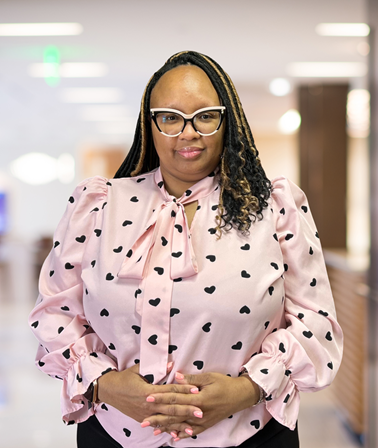
Owner, KScott Learning Consultants
Kimberly Scott is an award-winning instructional designer & content marketing lead with extensive expertise in learning strategy development, educational technology, and learning management systems. She has successfully delivered innovative solutions across K-12, higher education, corporate, government, and non-profit sectors to audiences in over 150 countries worldwide. As founder of KScott Learning Consultants, she provides customized instructional design, learning management system optimization, and learning concierge services. Her dynamic approach focuses on creating engaging learning solutions that drive organizational growth and measurable learner success. Kimberly's proven track record makes her a trusted partner for organizations seeking to elevate their learning initiatives.
She has won 8 awards, including an H5P Community Choice award, an IT Hall of Fame award, a Global Team award, and 5 Bravo Zulu or “Job Well Done” awards.










